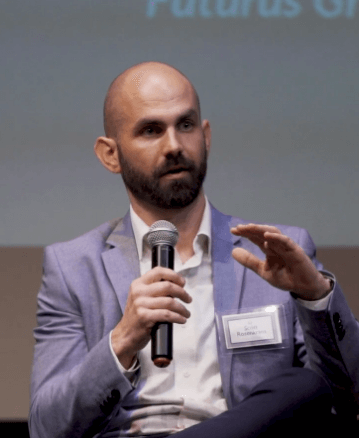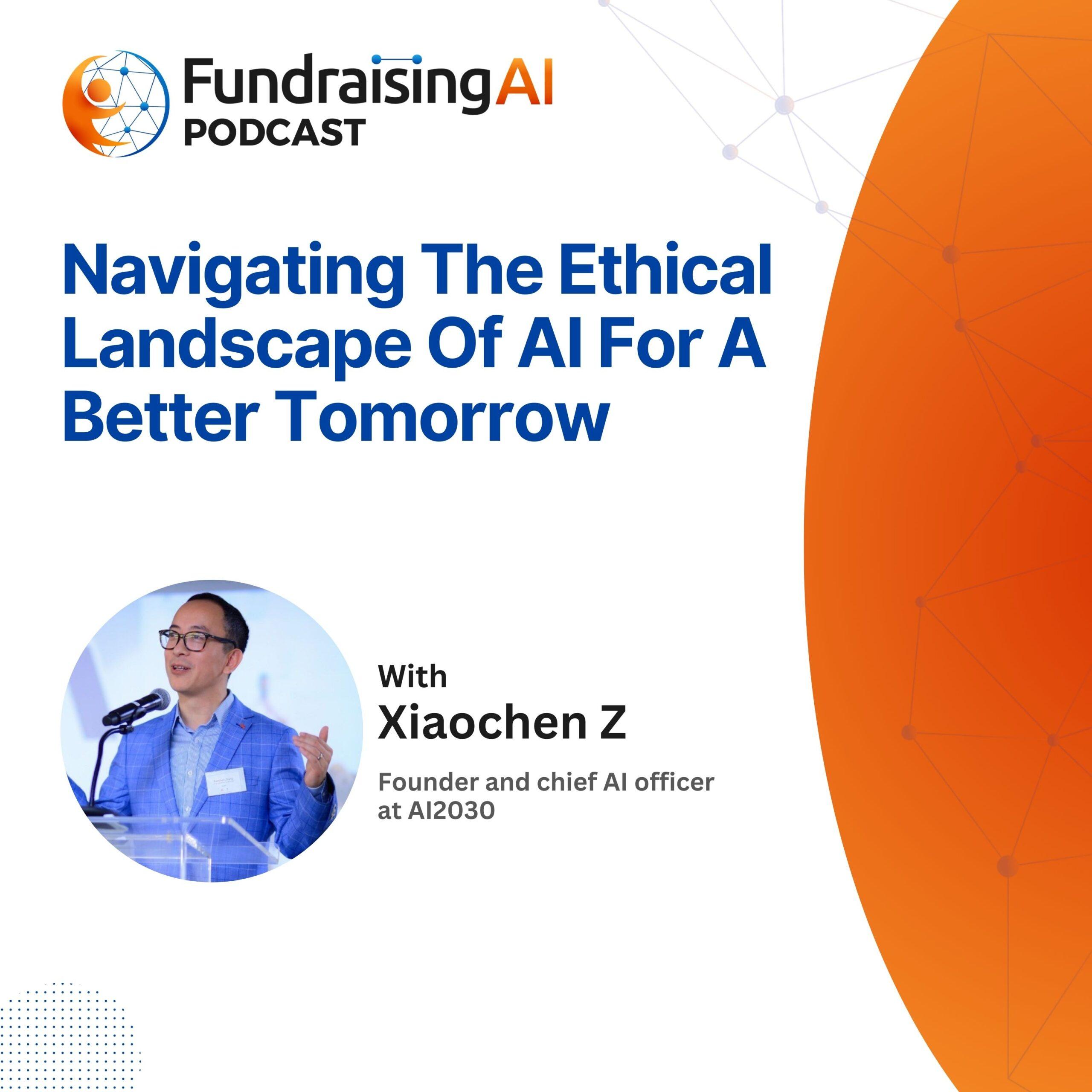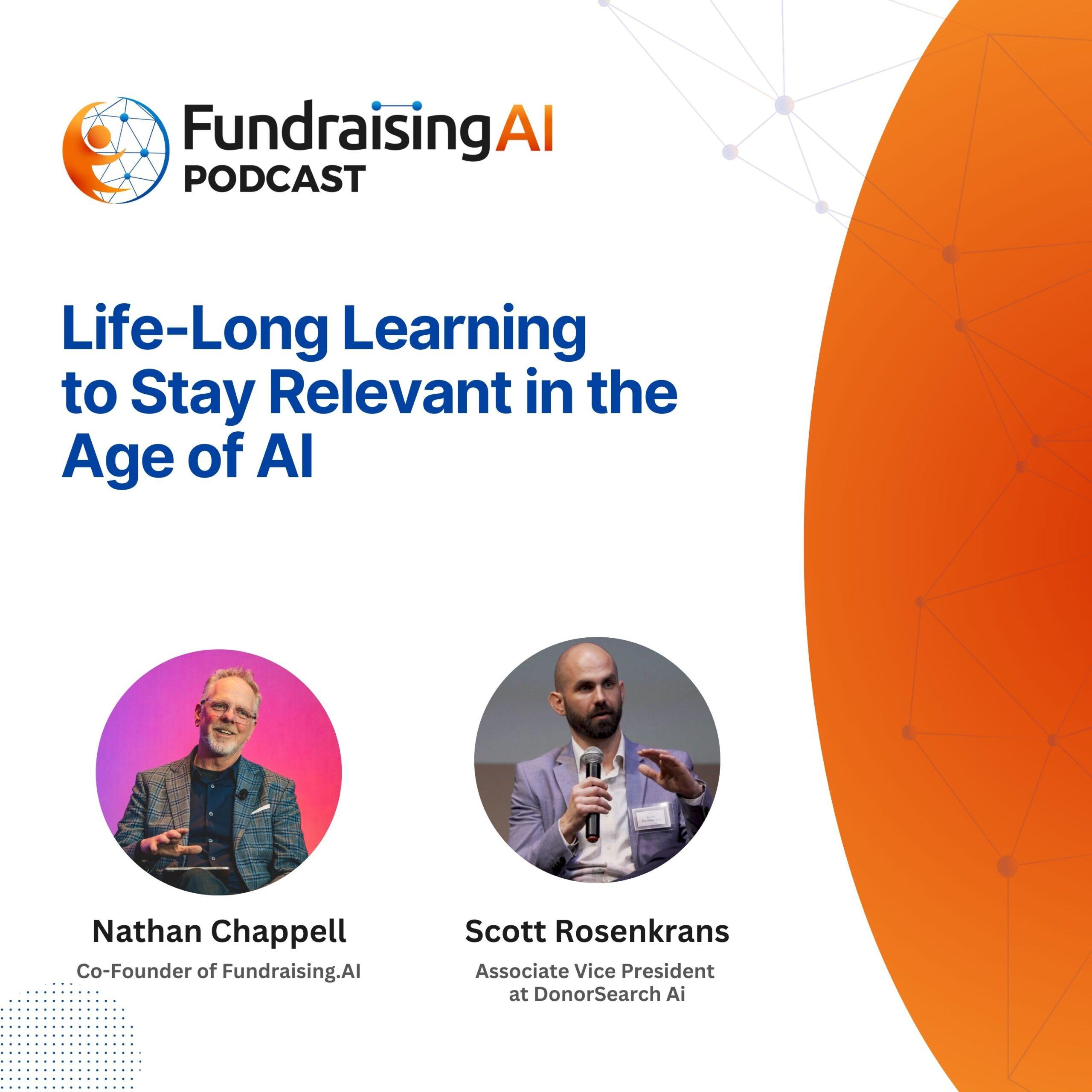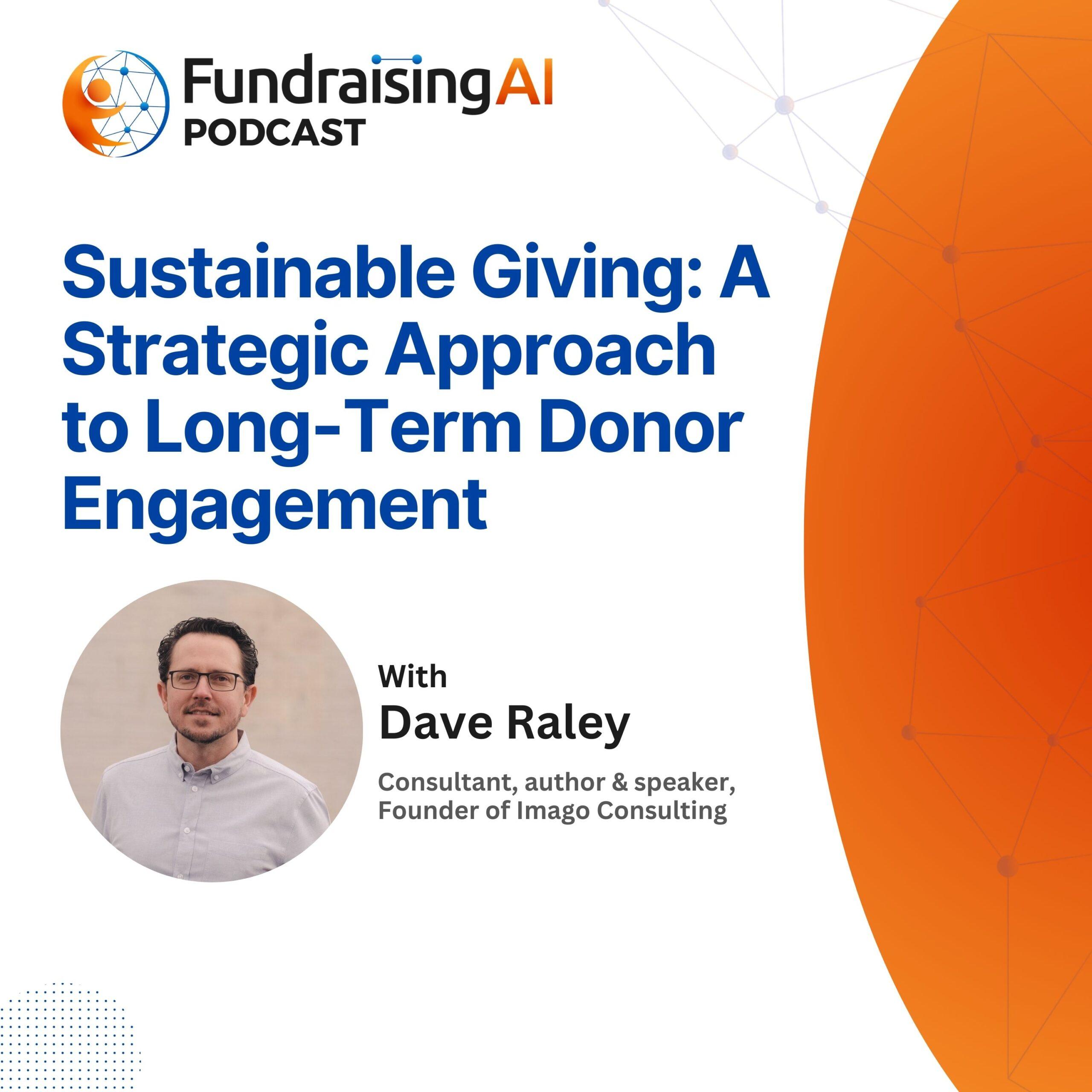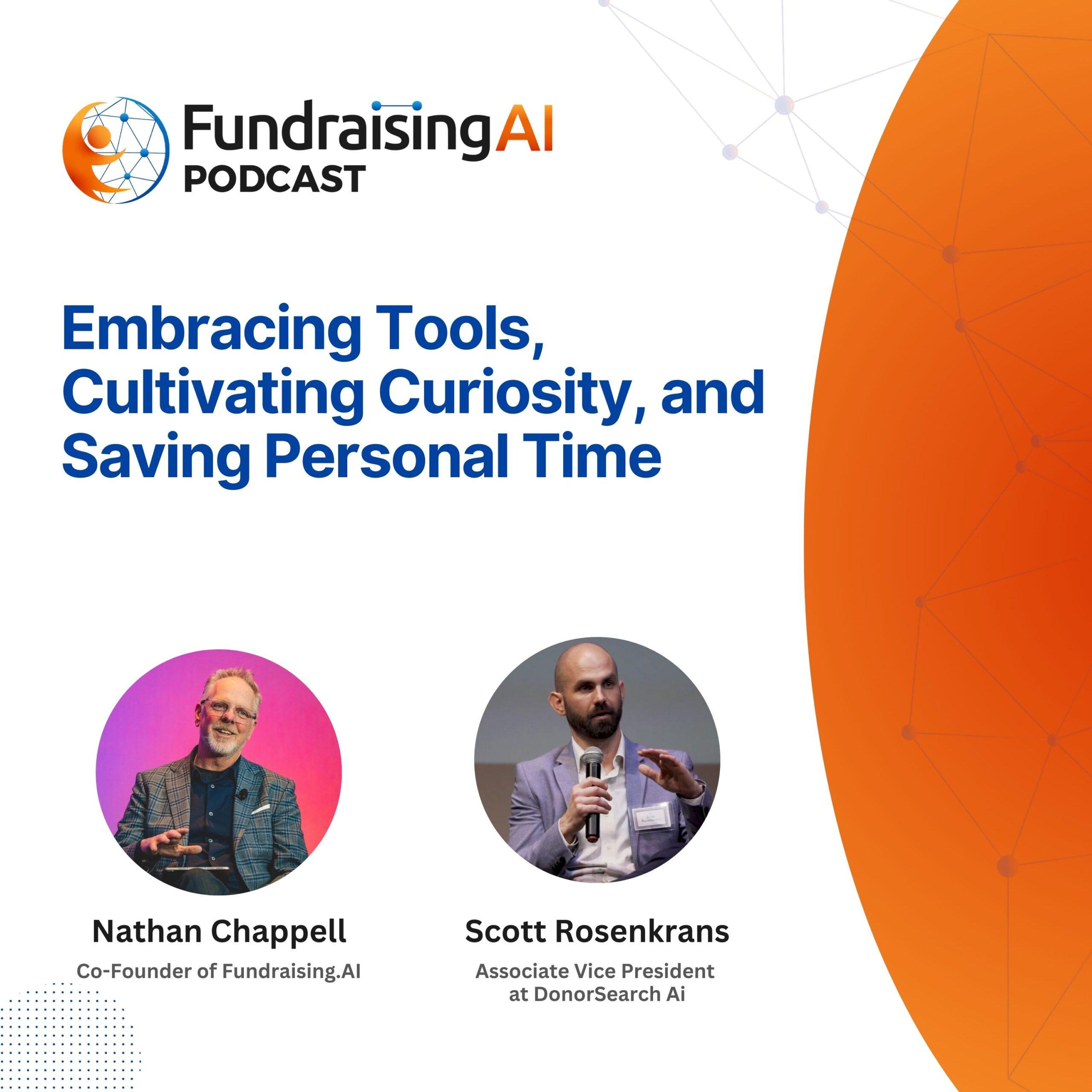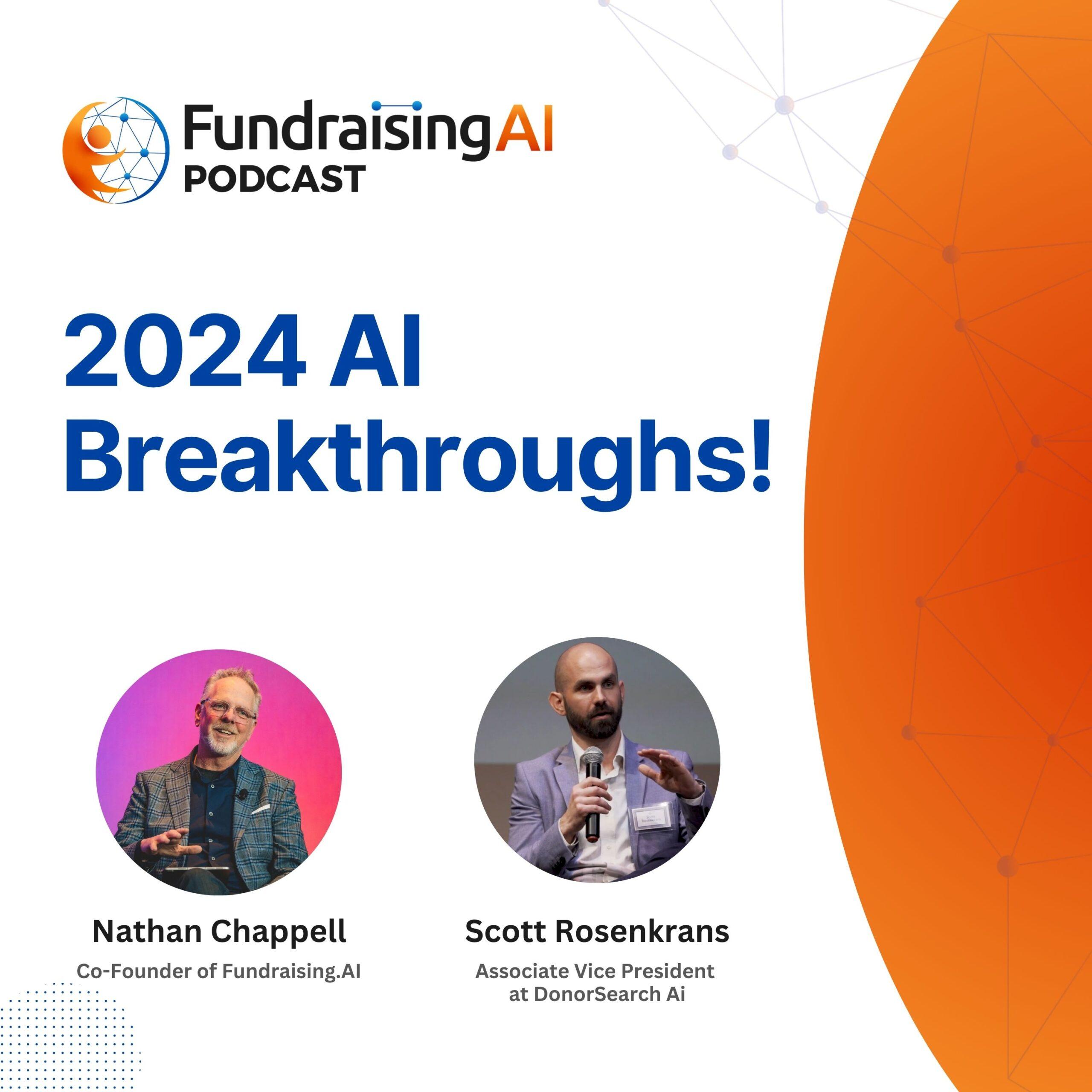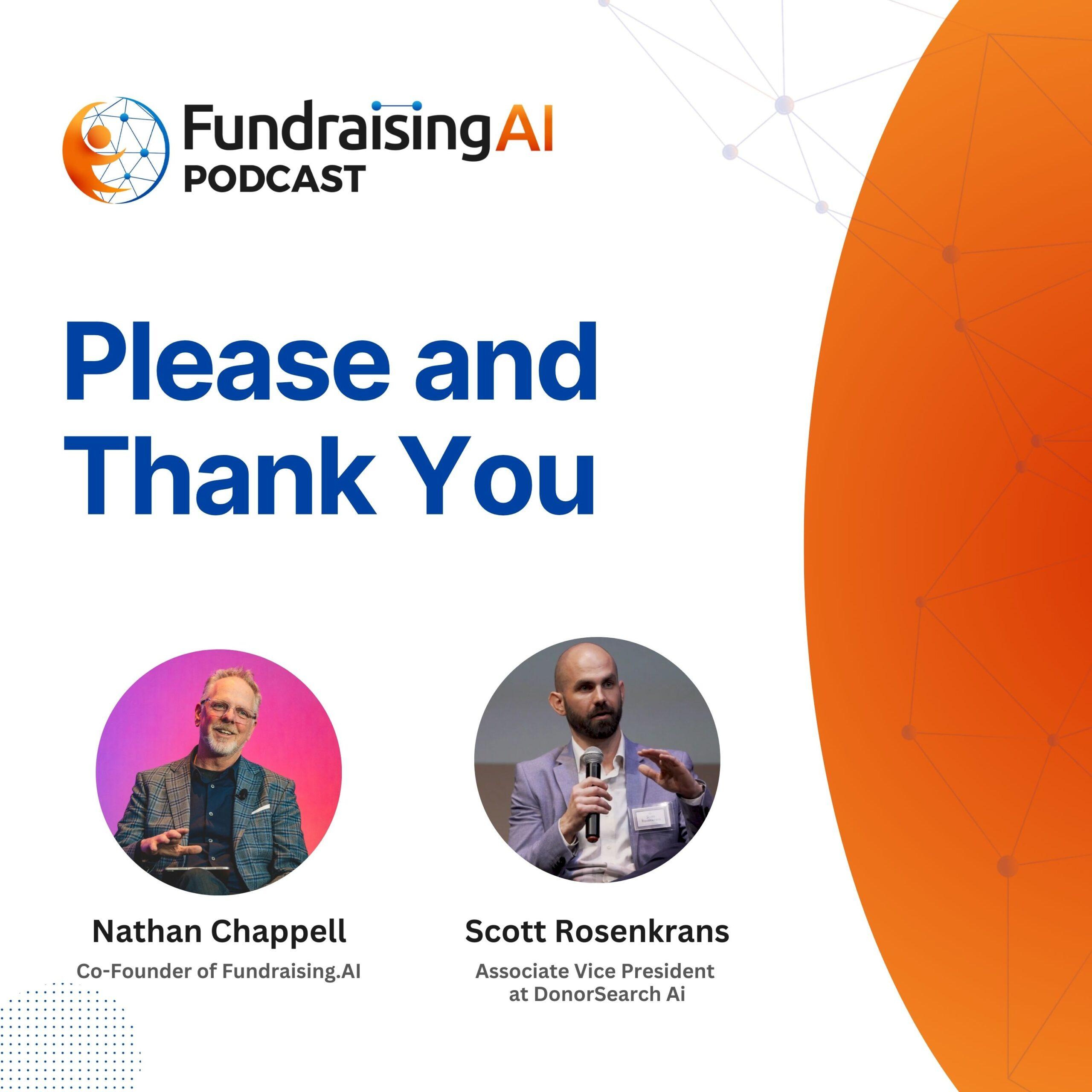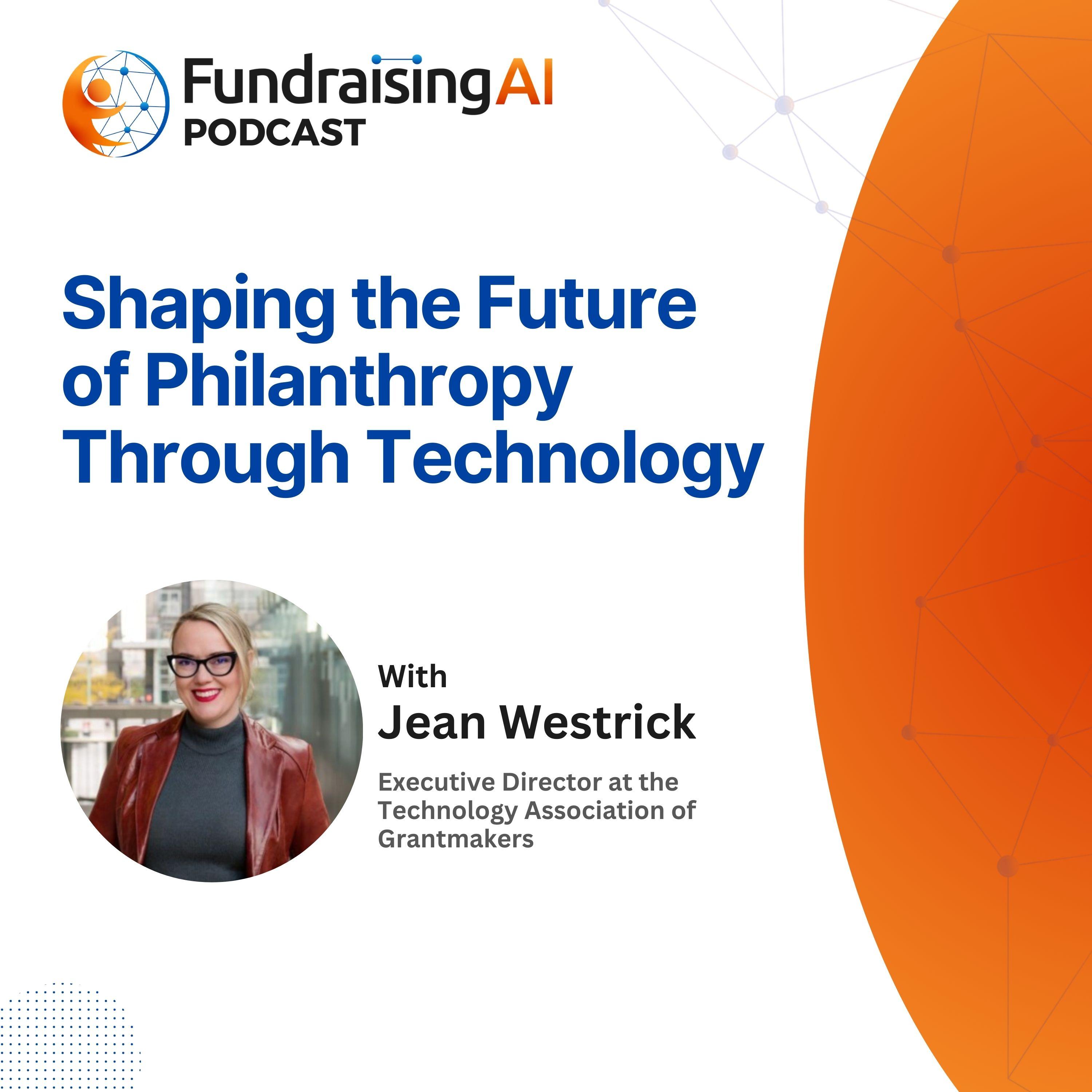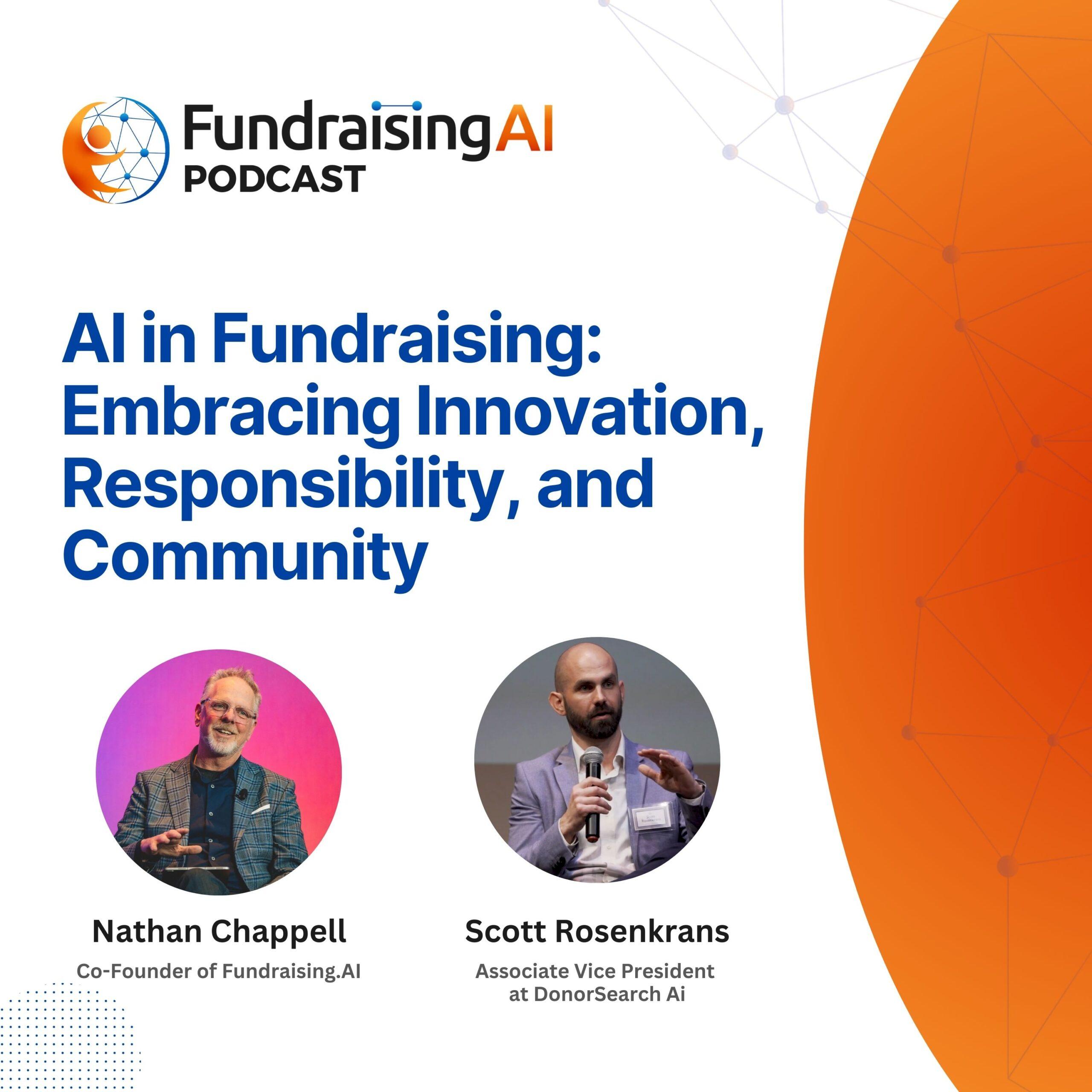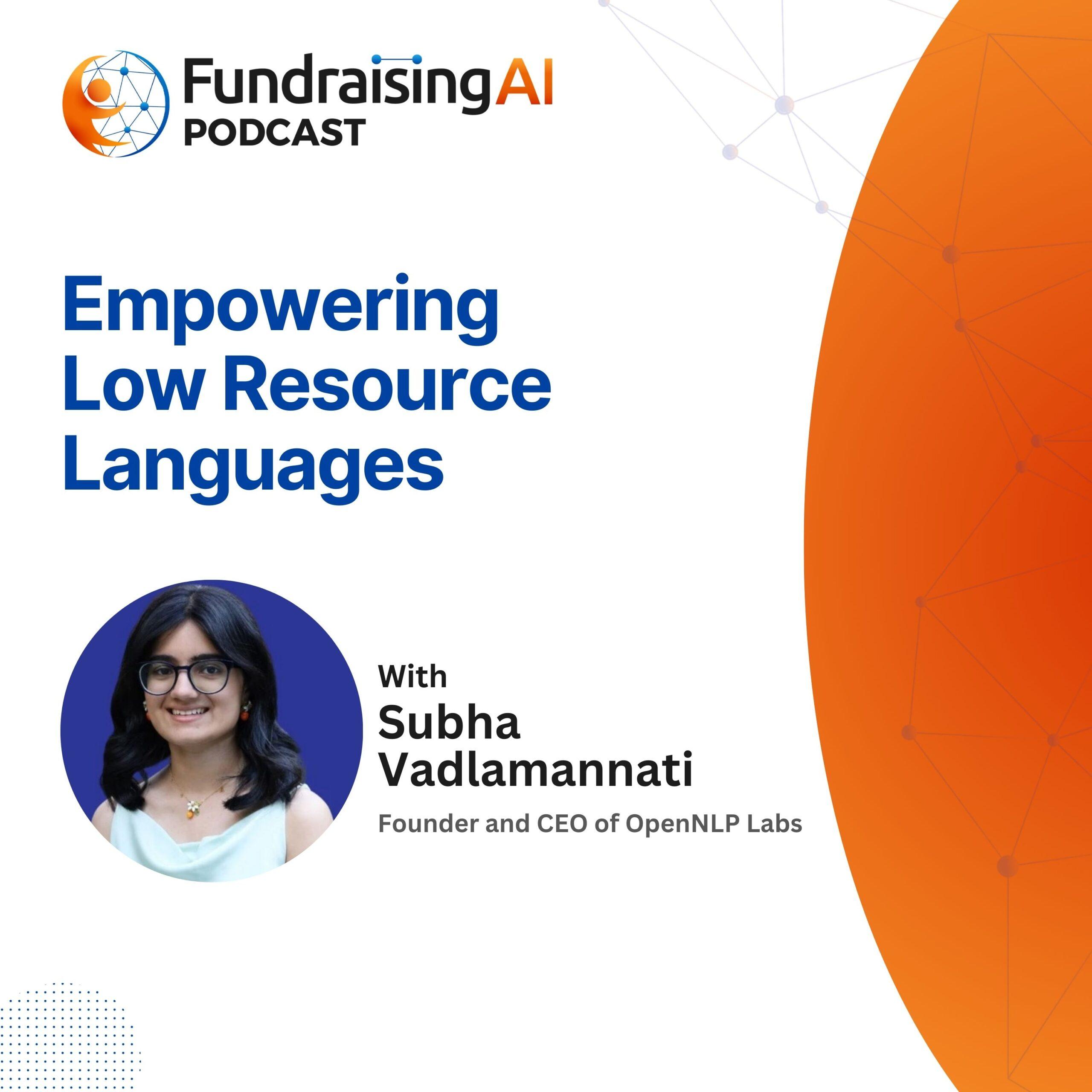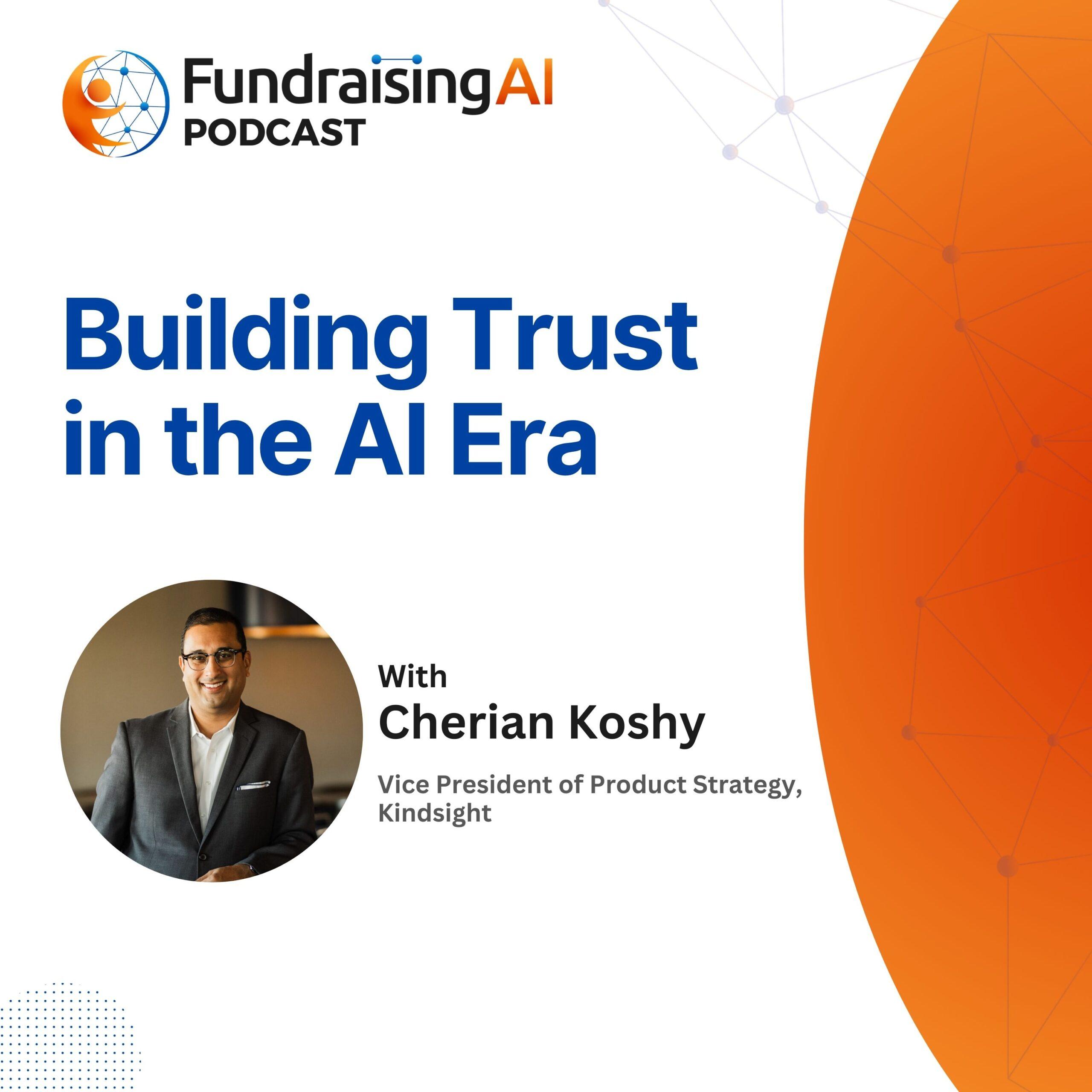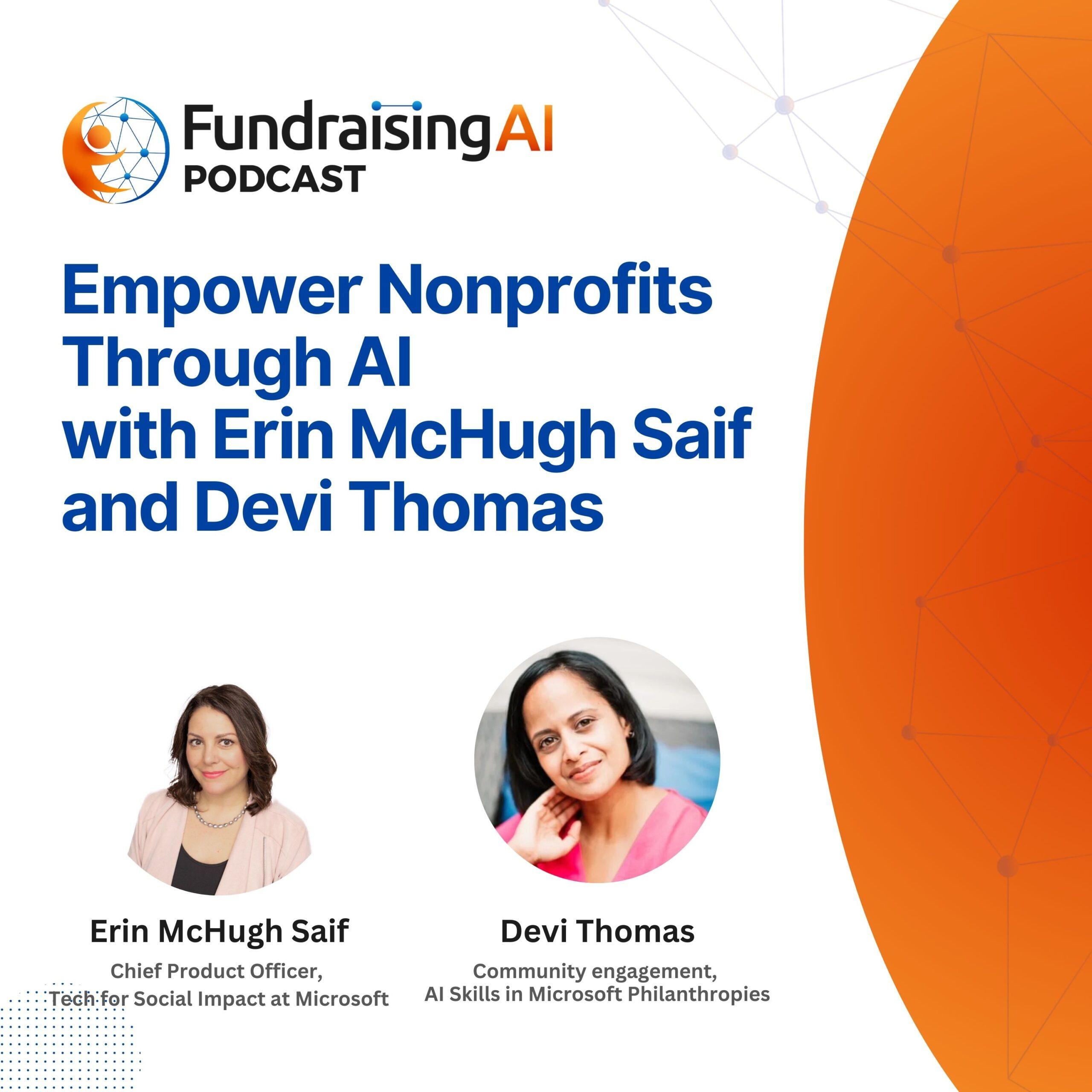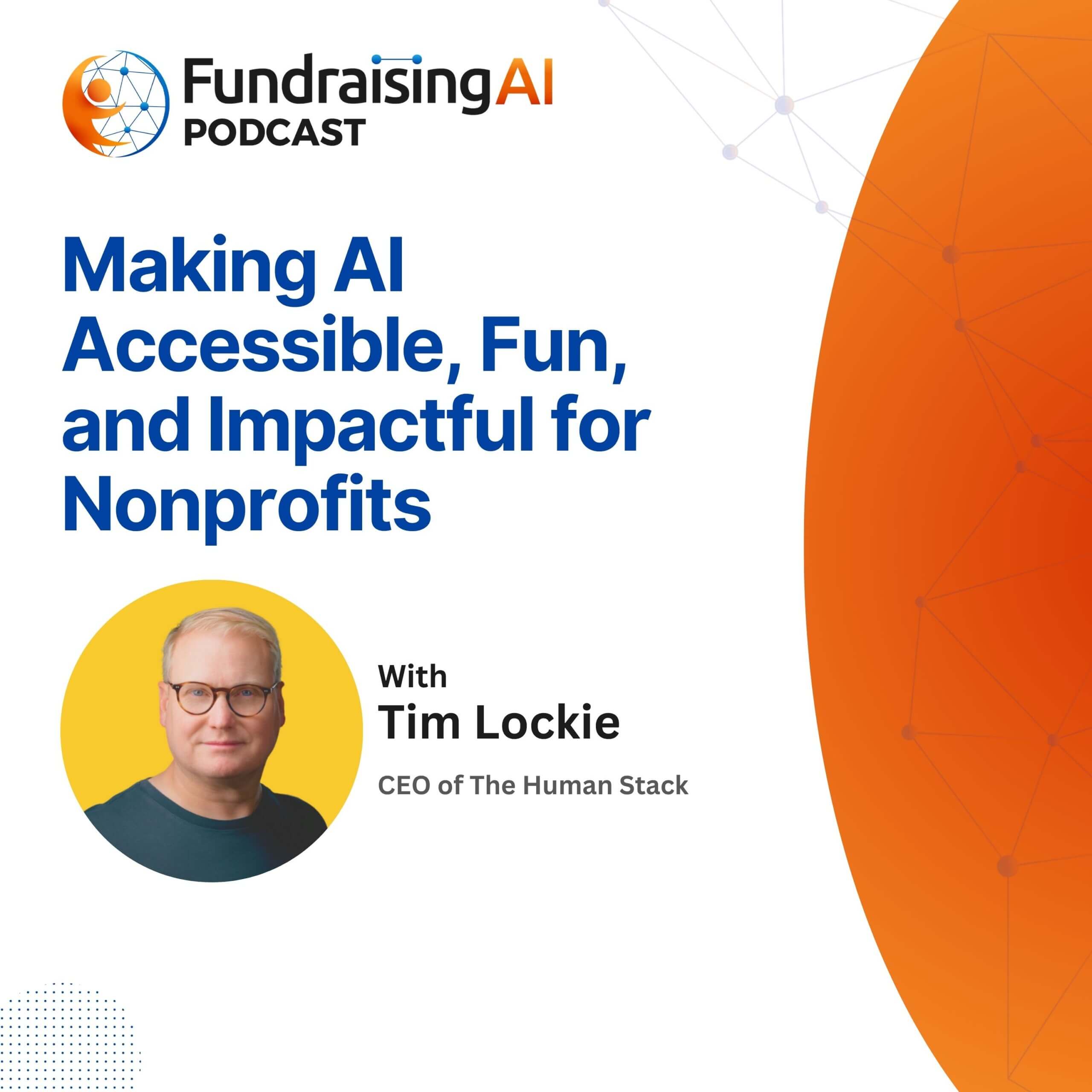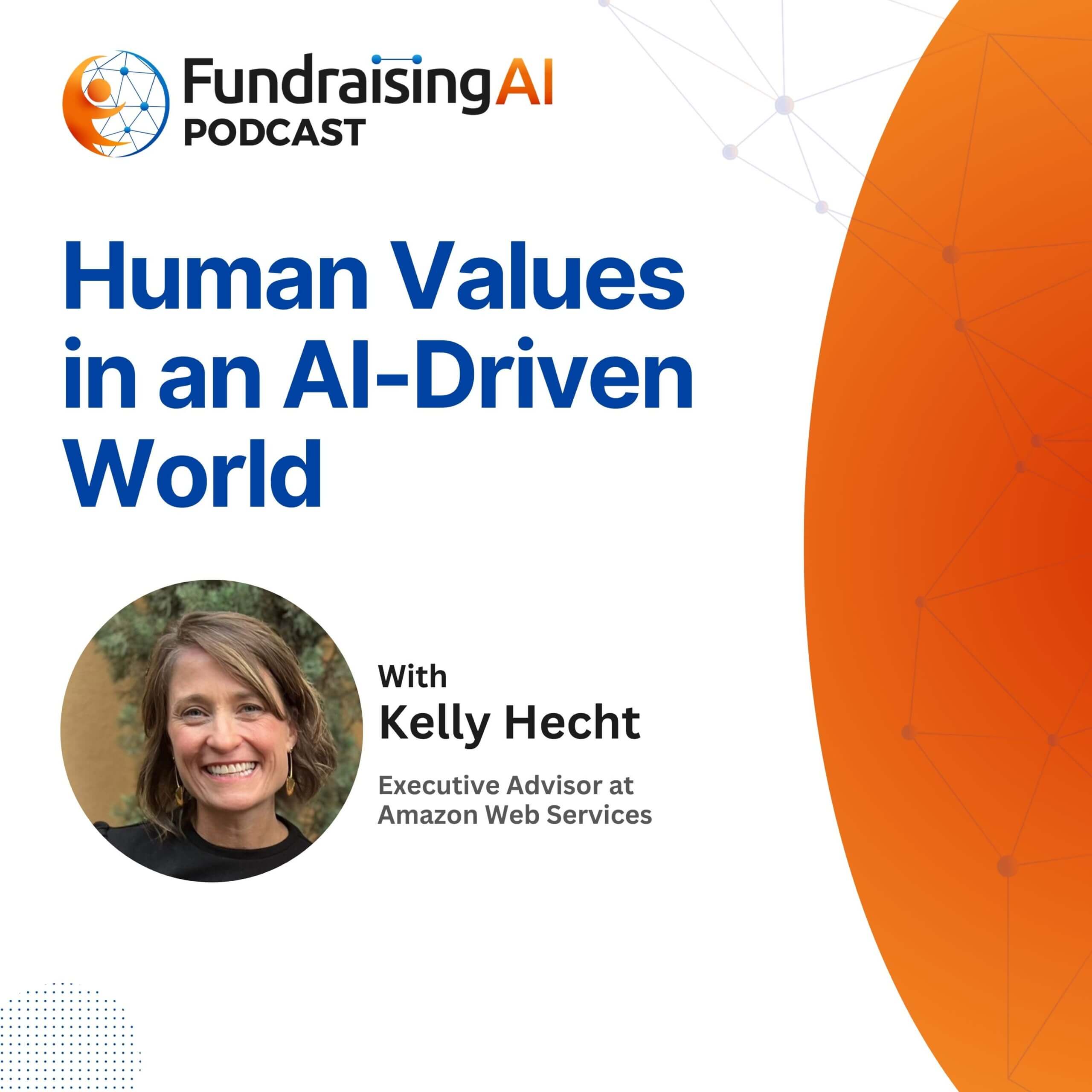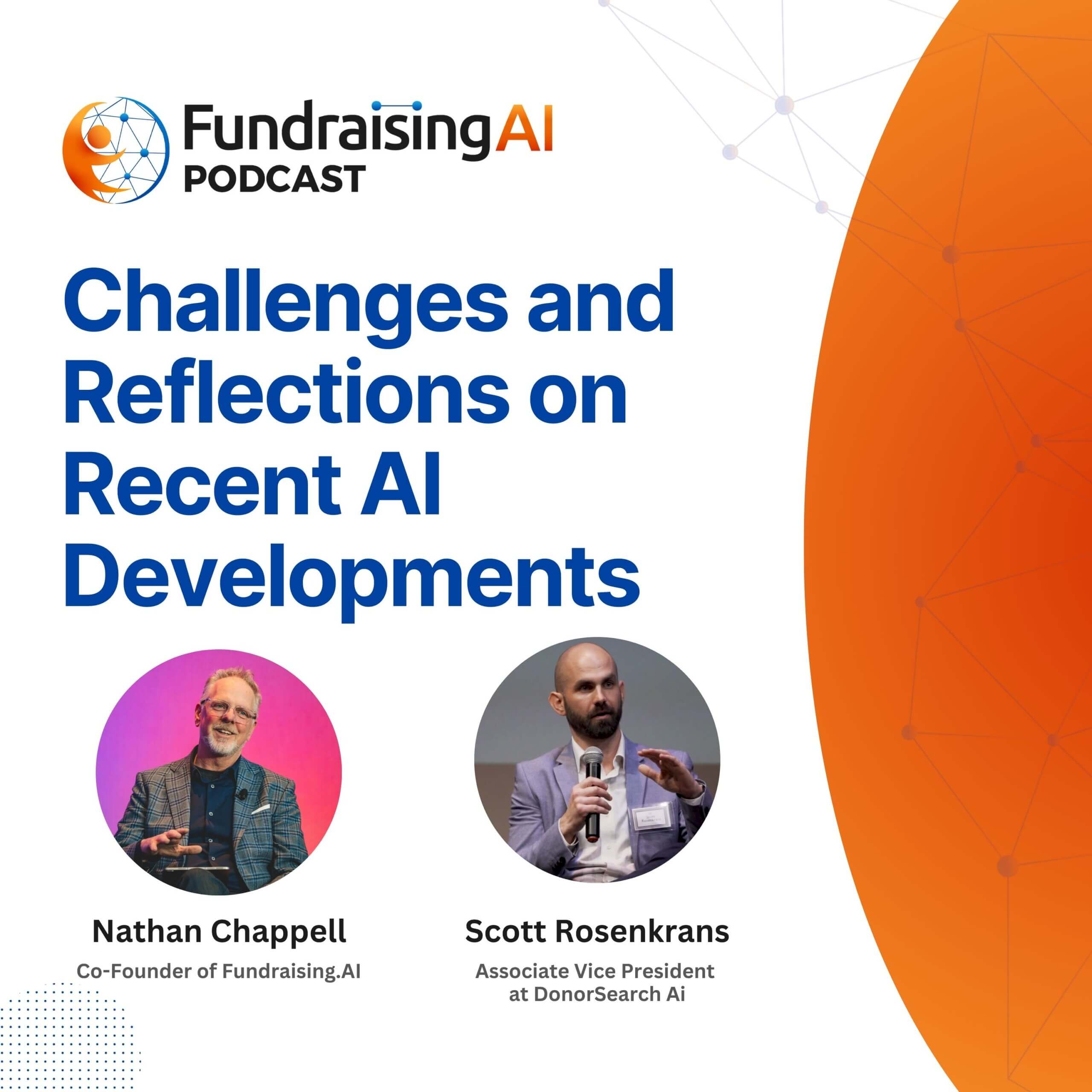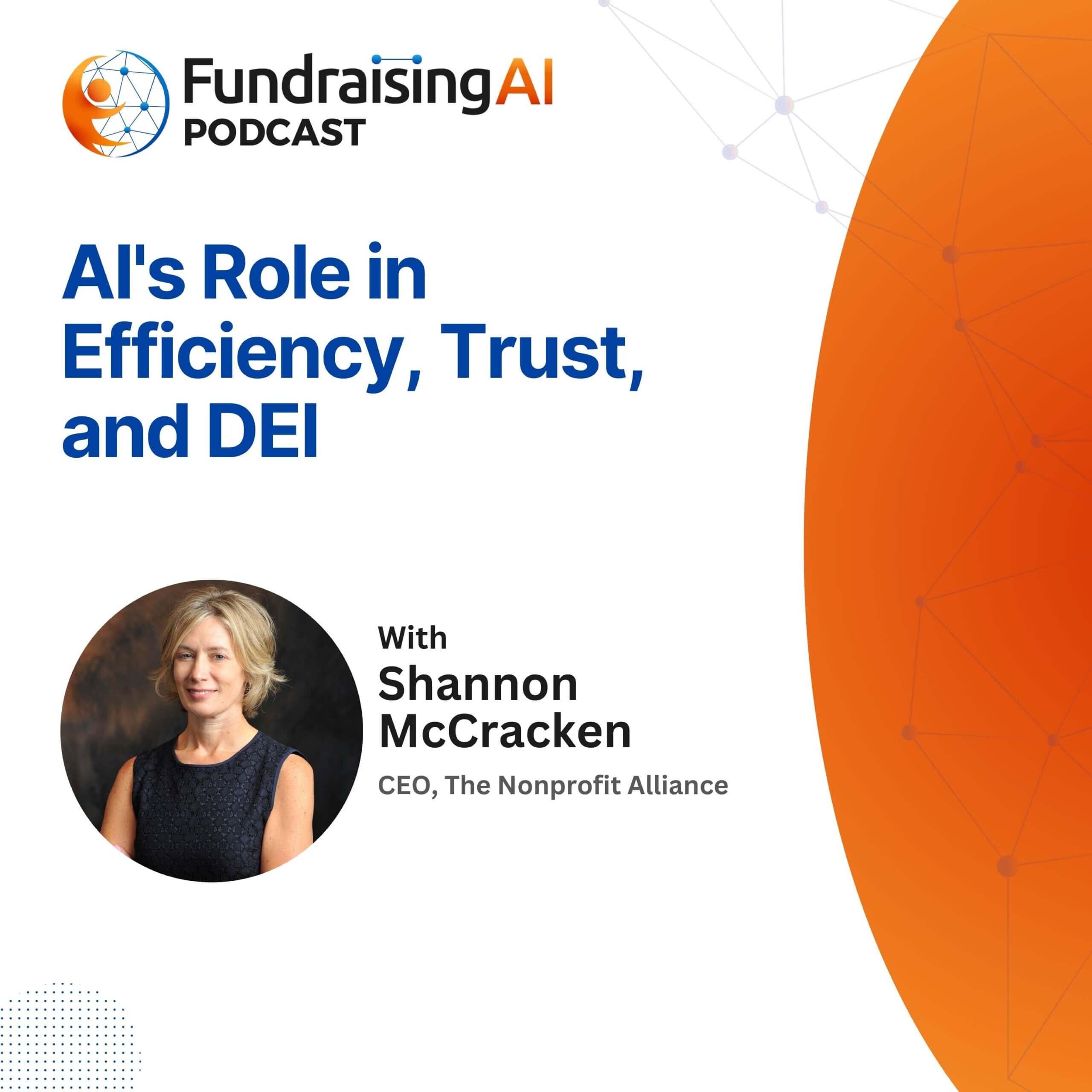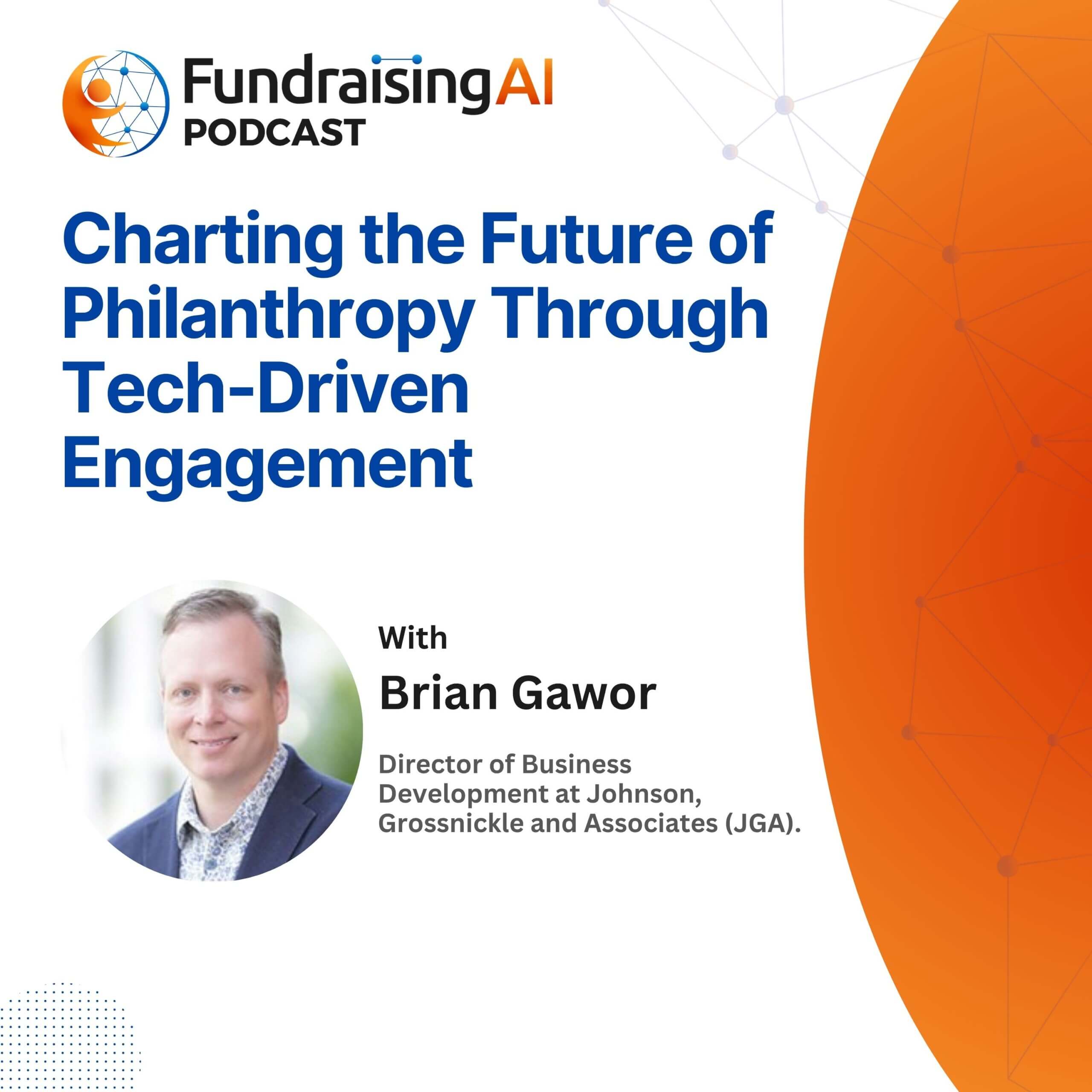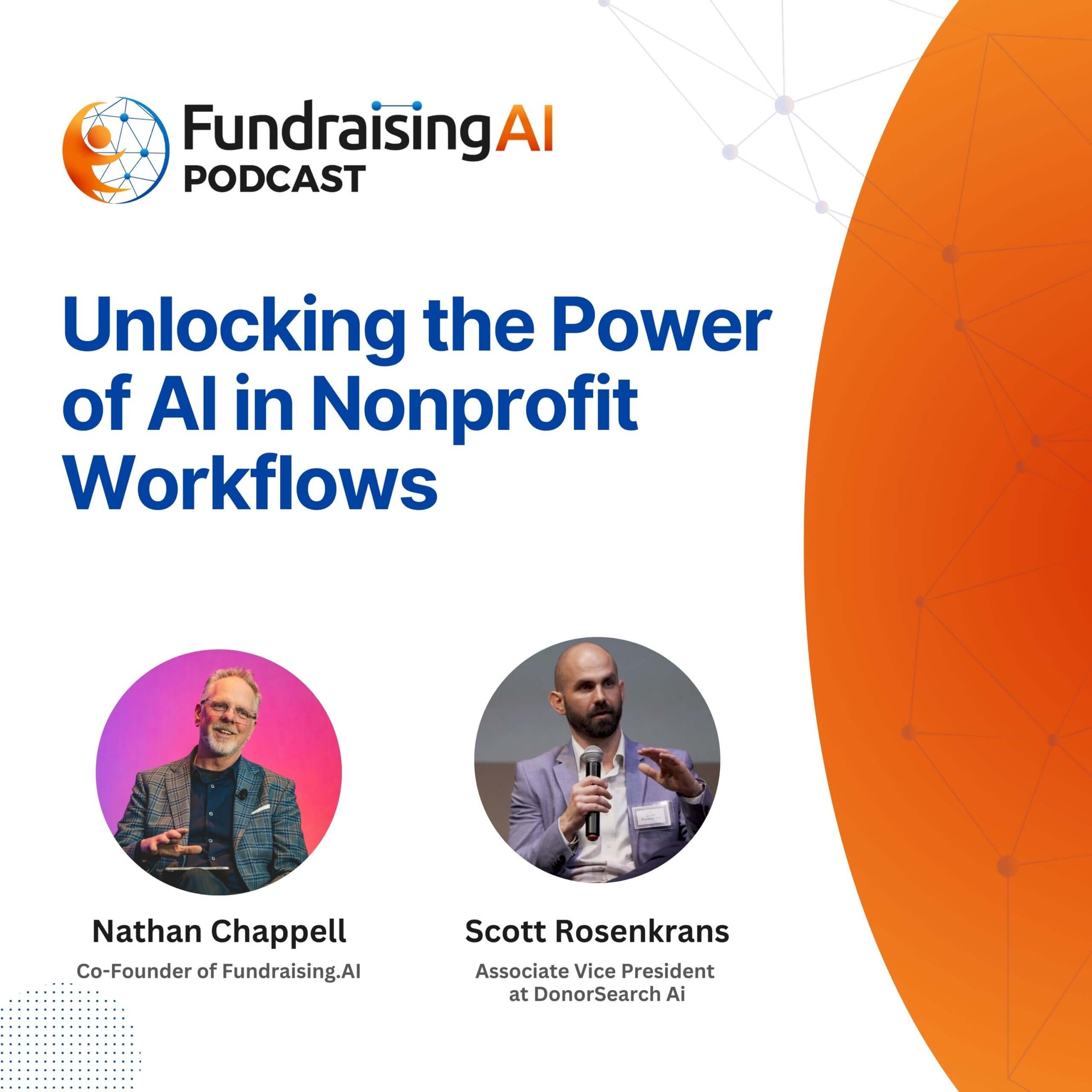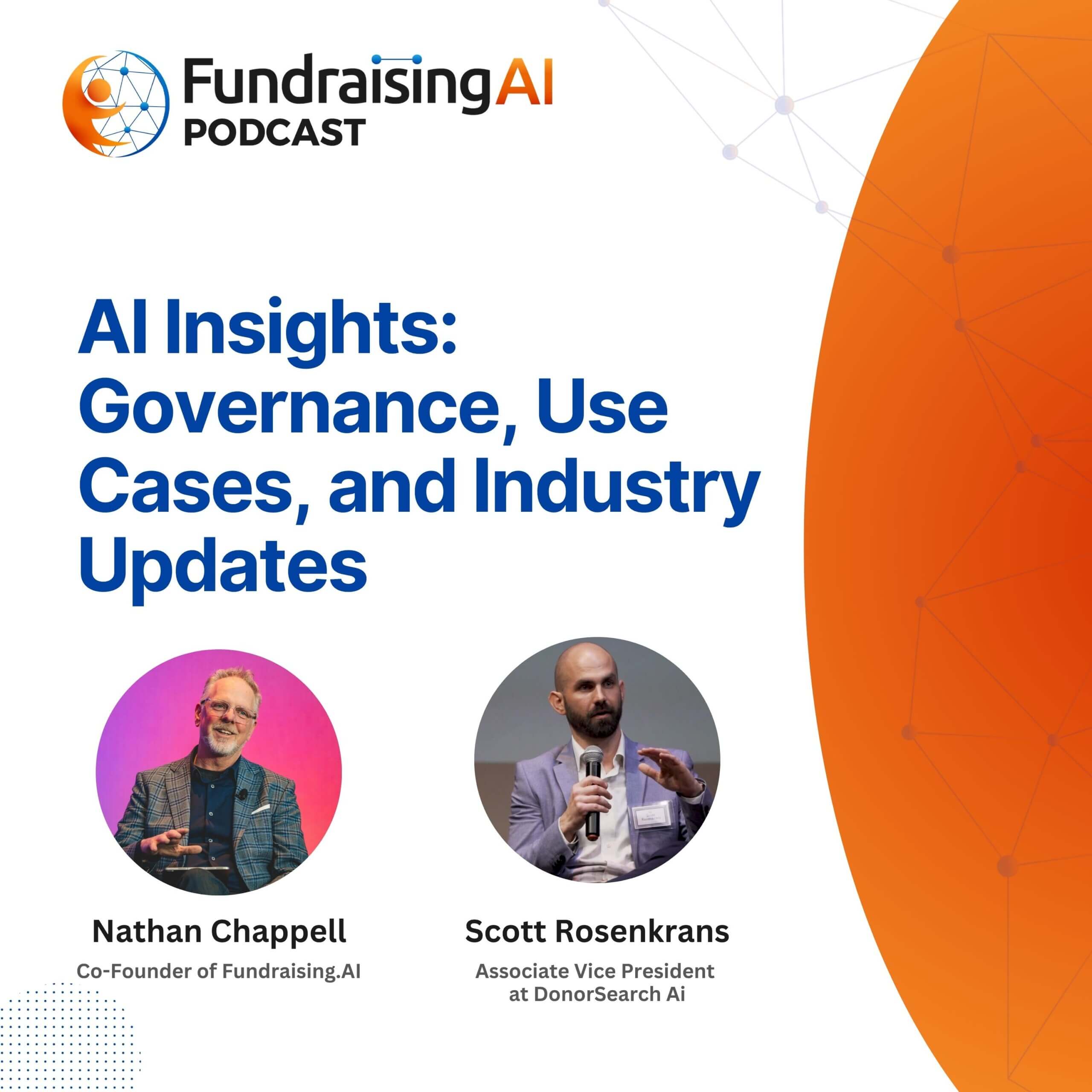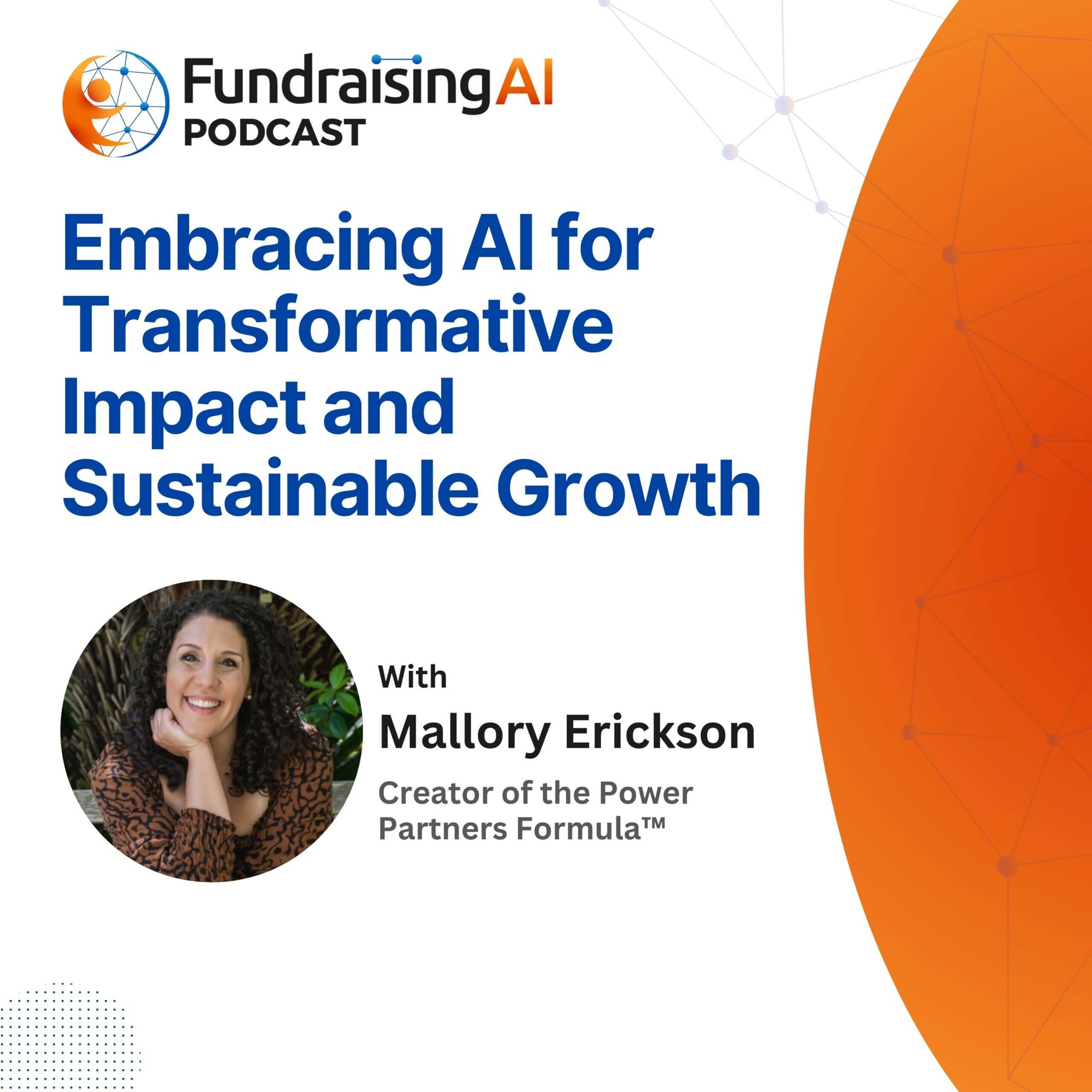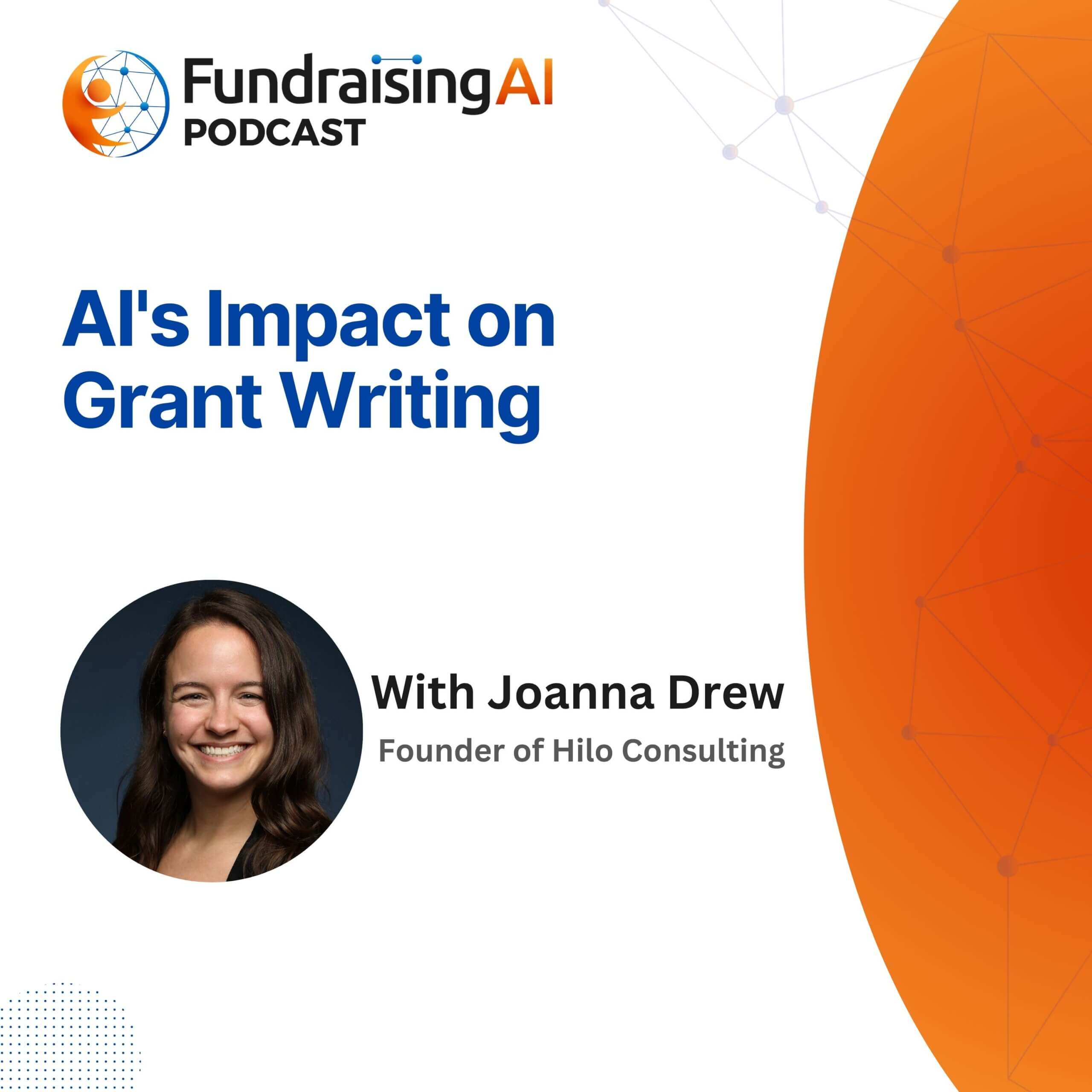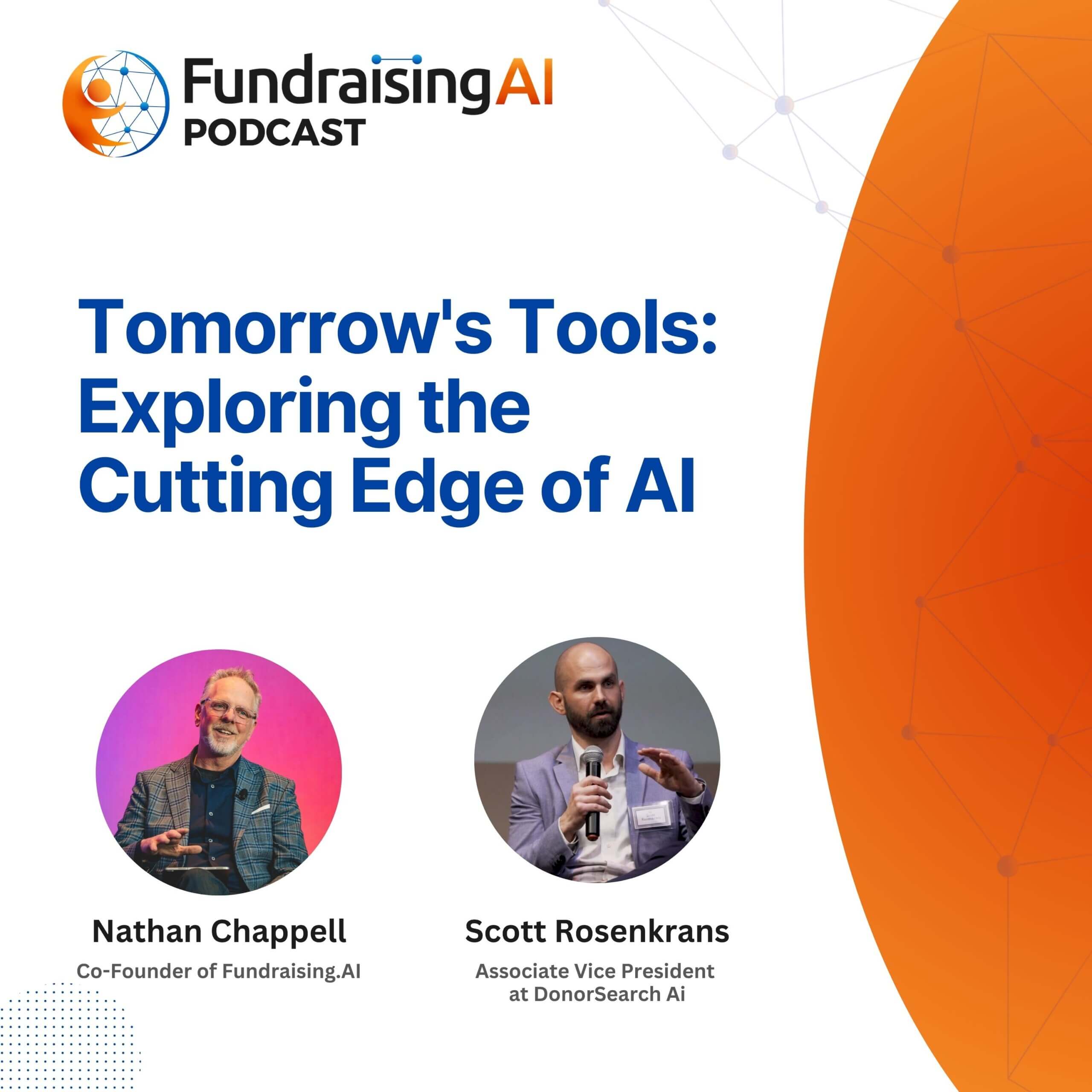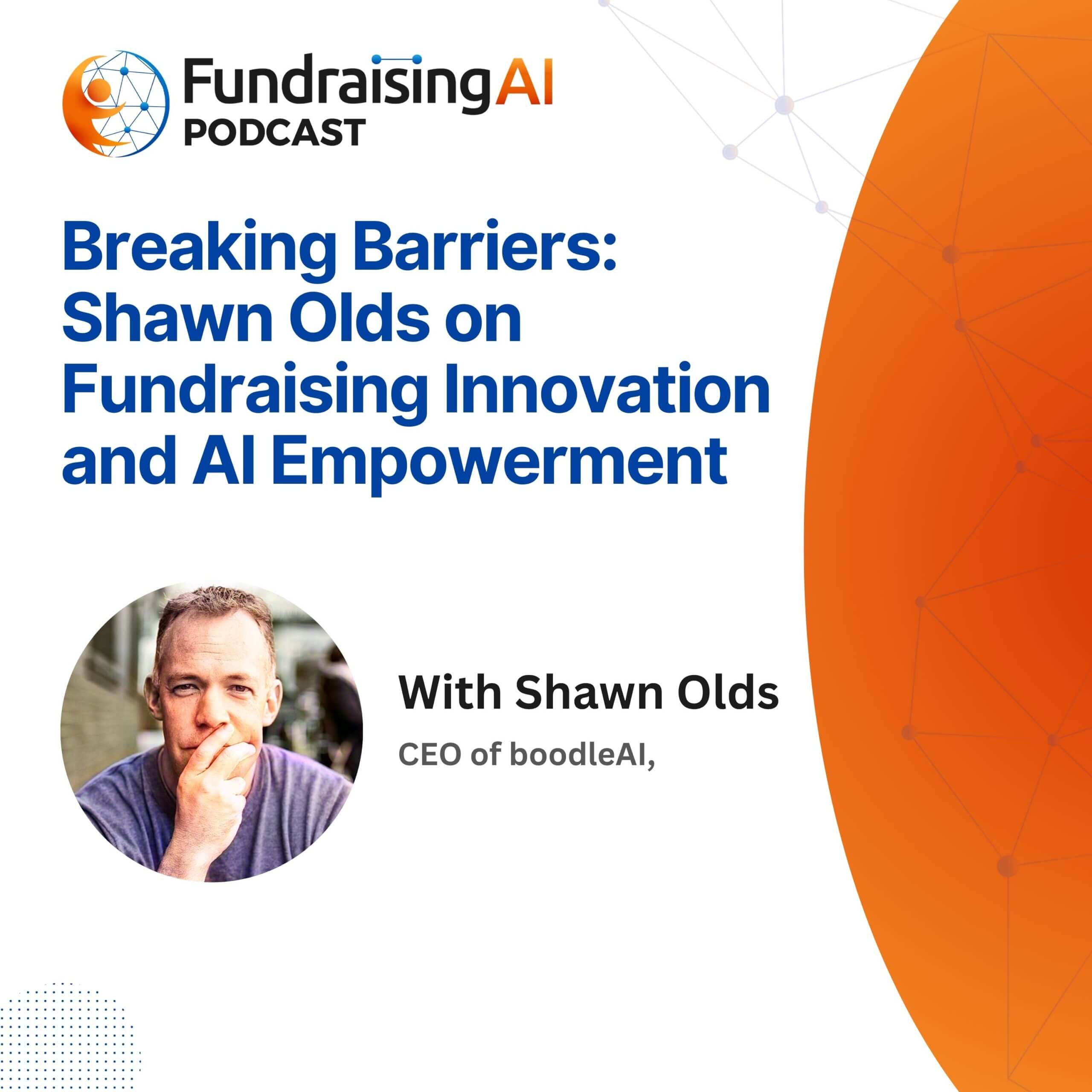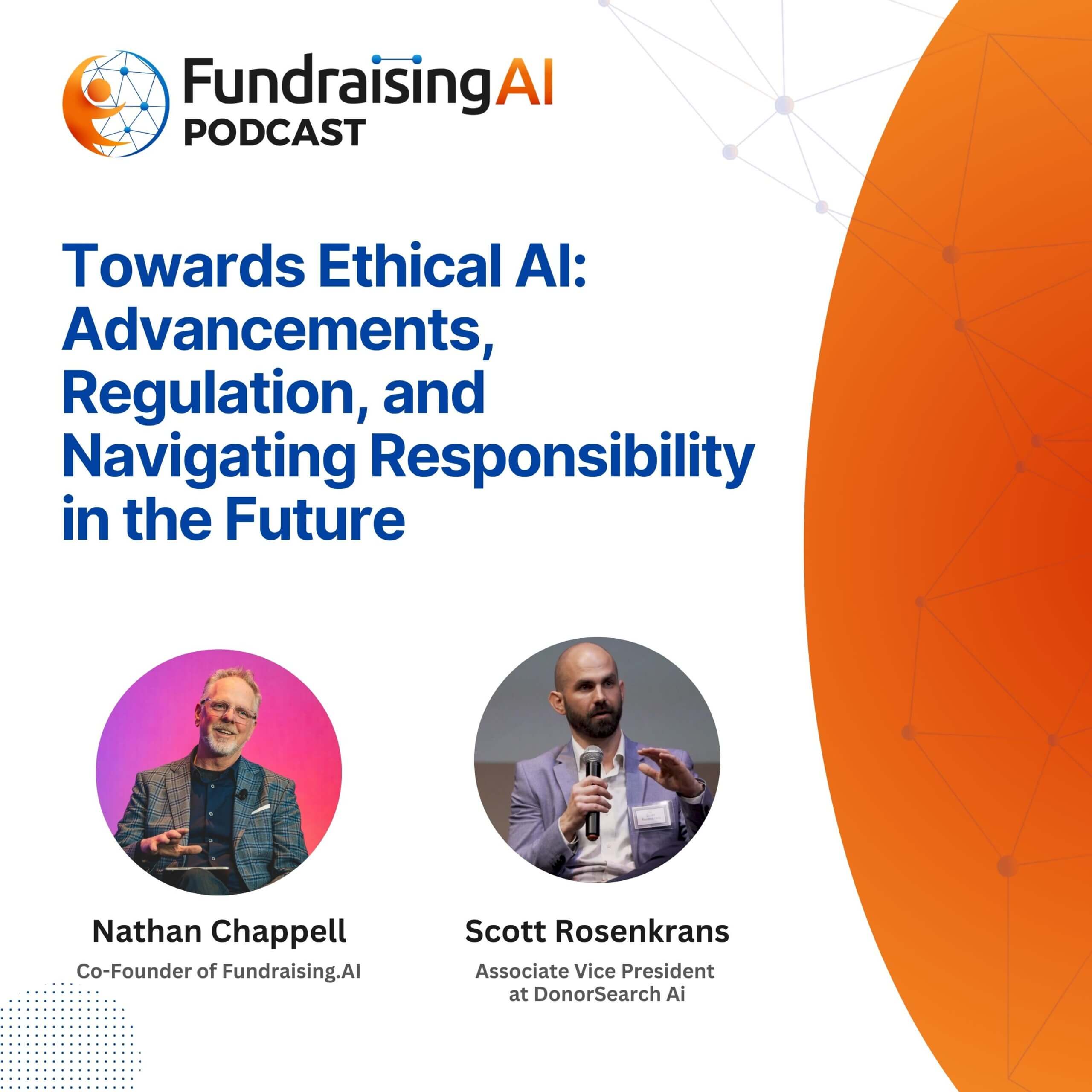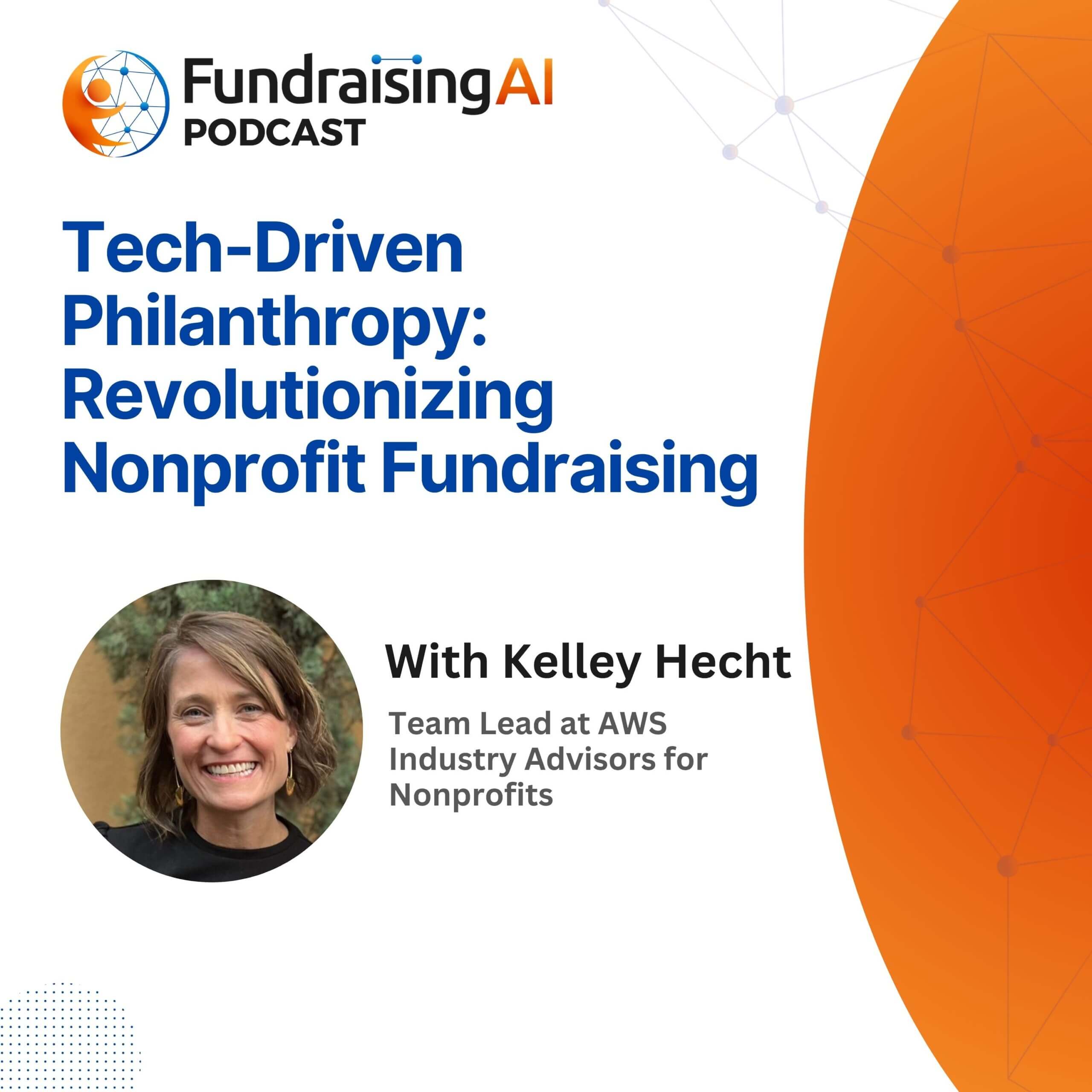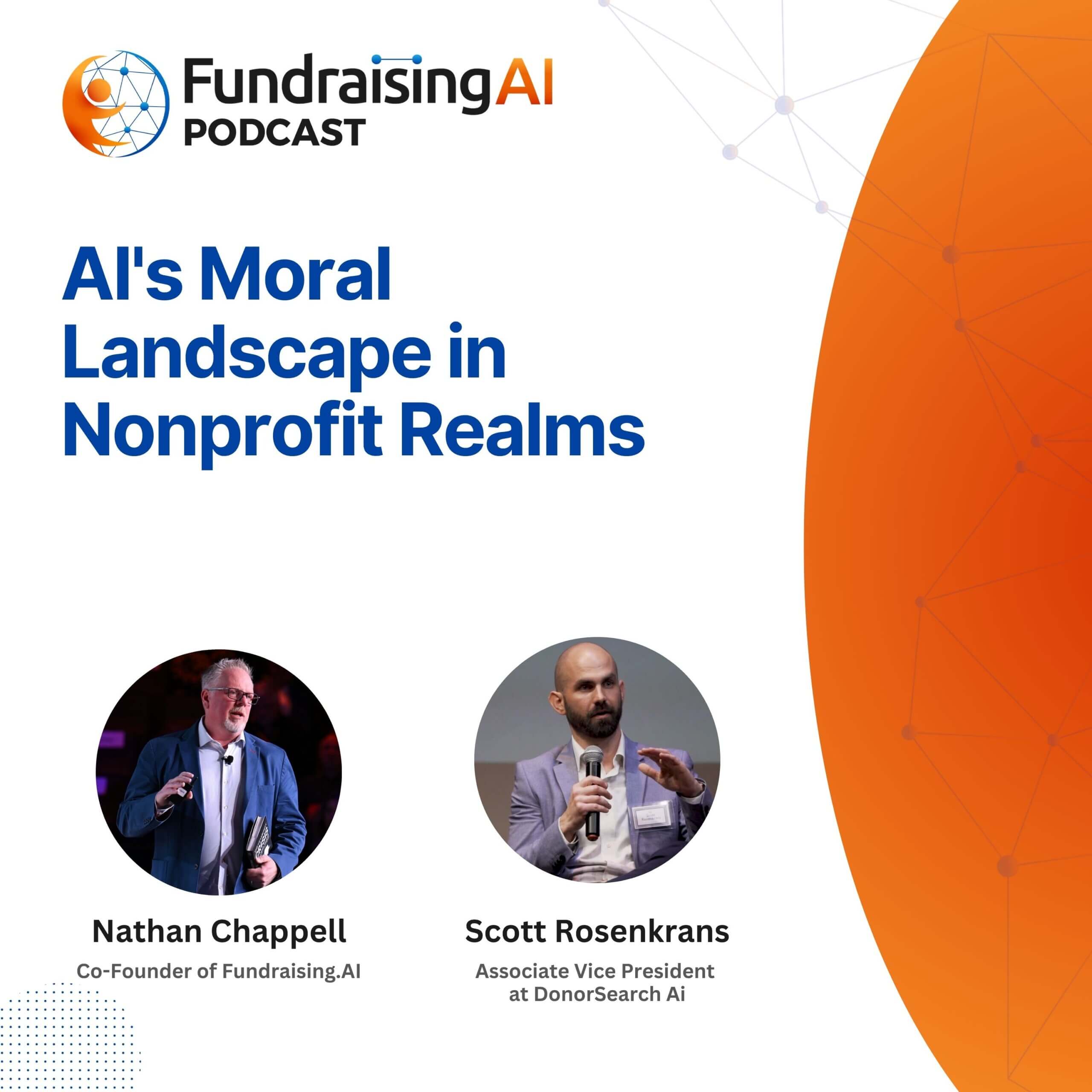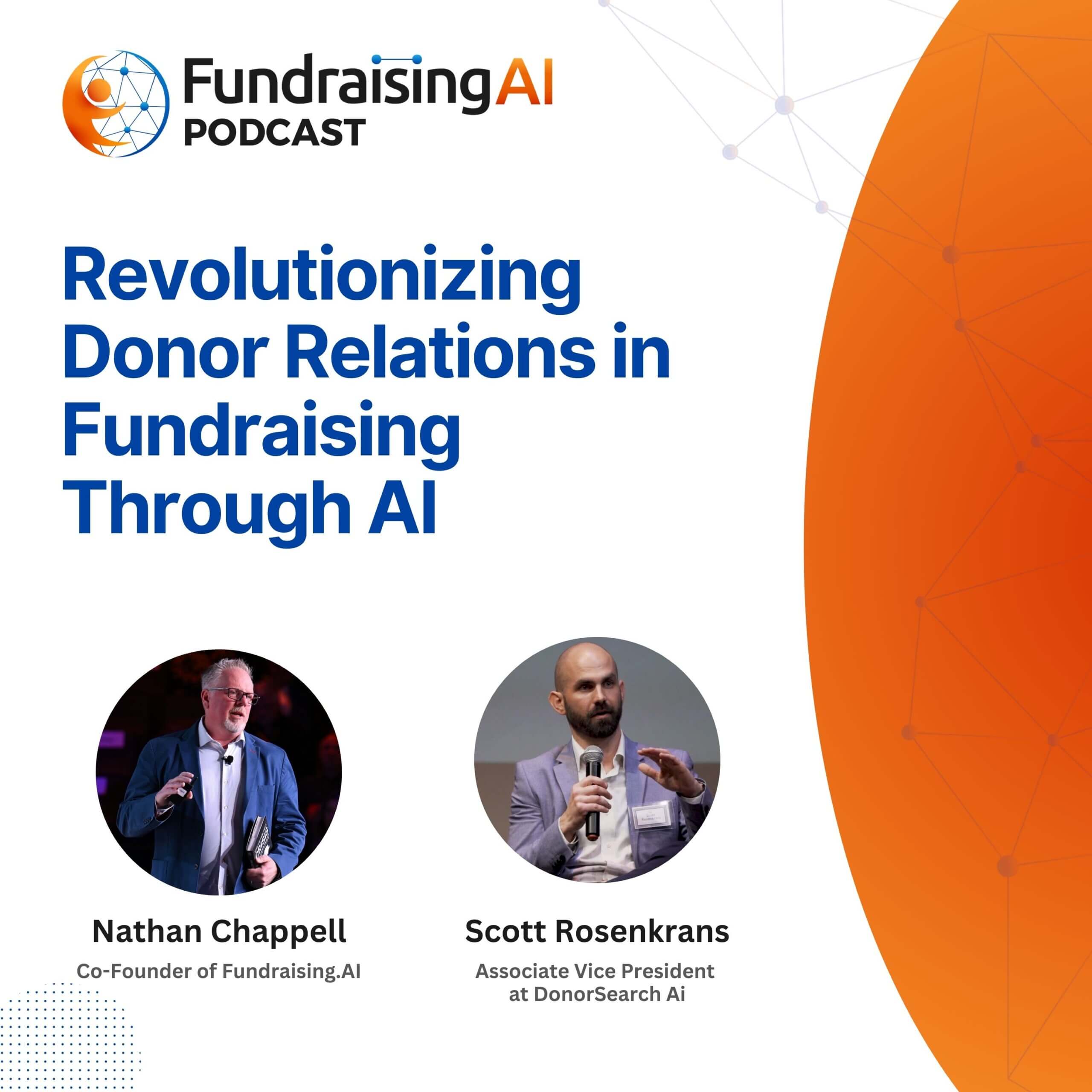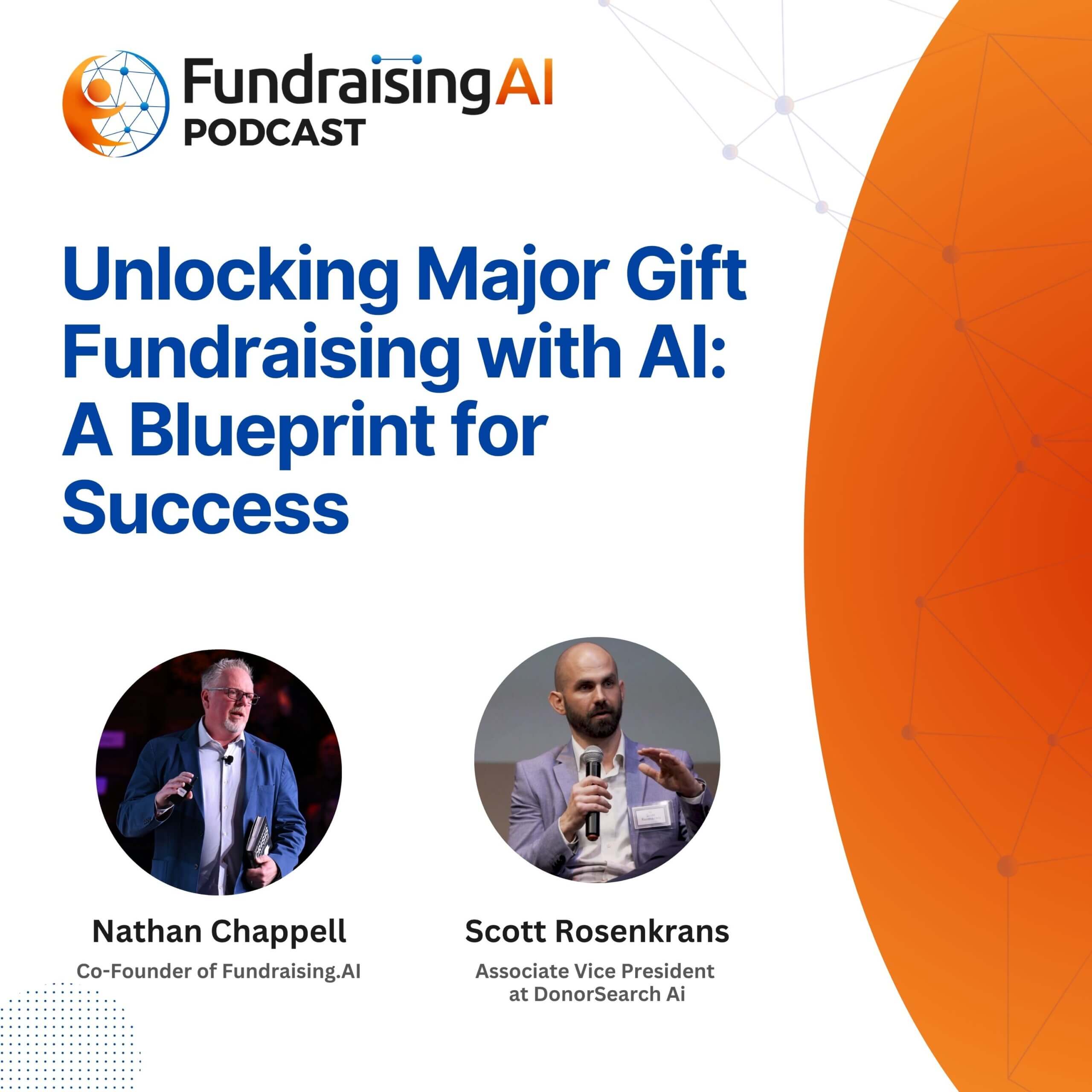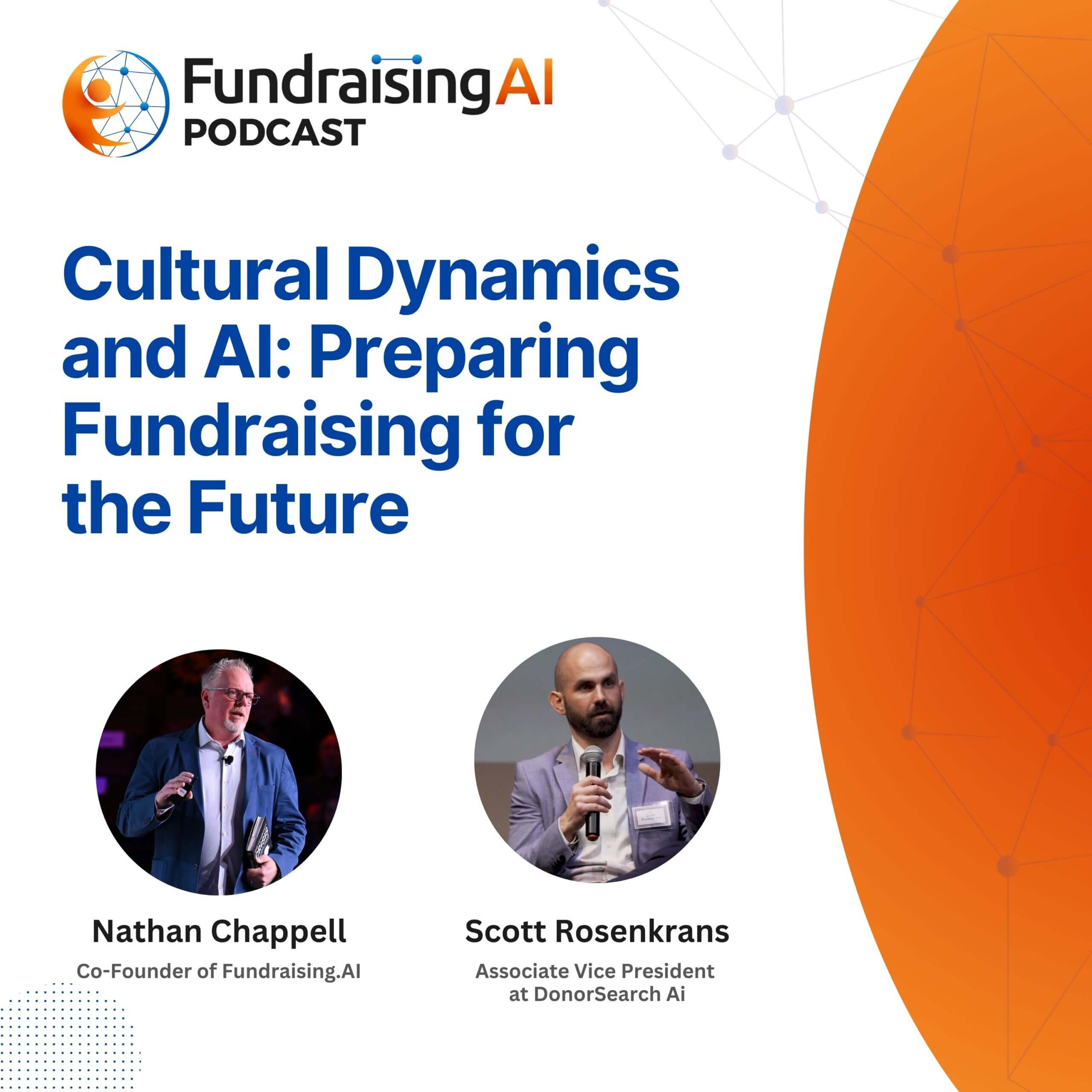Fundraising.AI
Episode 45
Episode 45 - Please and Thank You
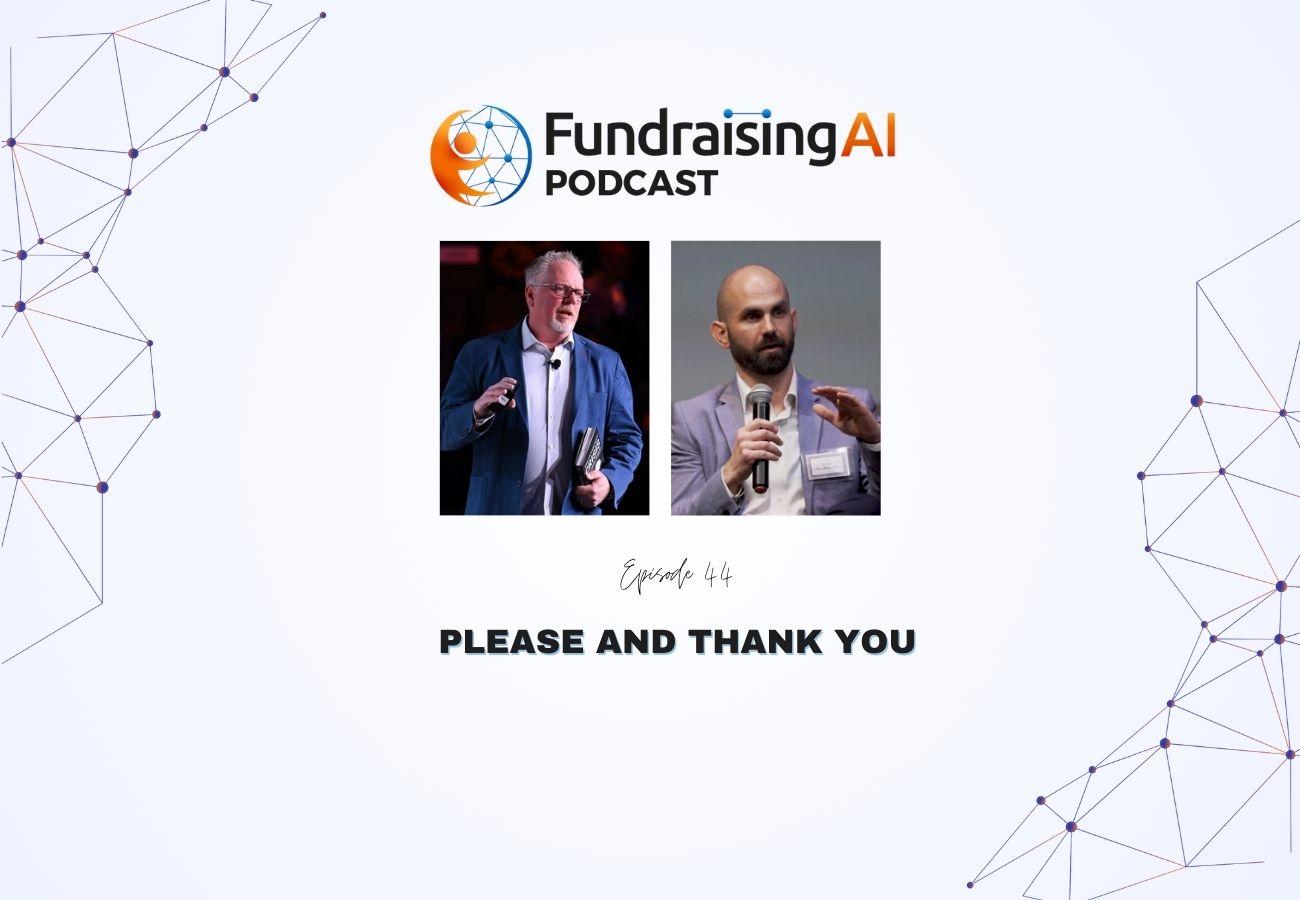
THIS EPISODE IS SPONSORED BY
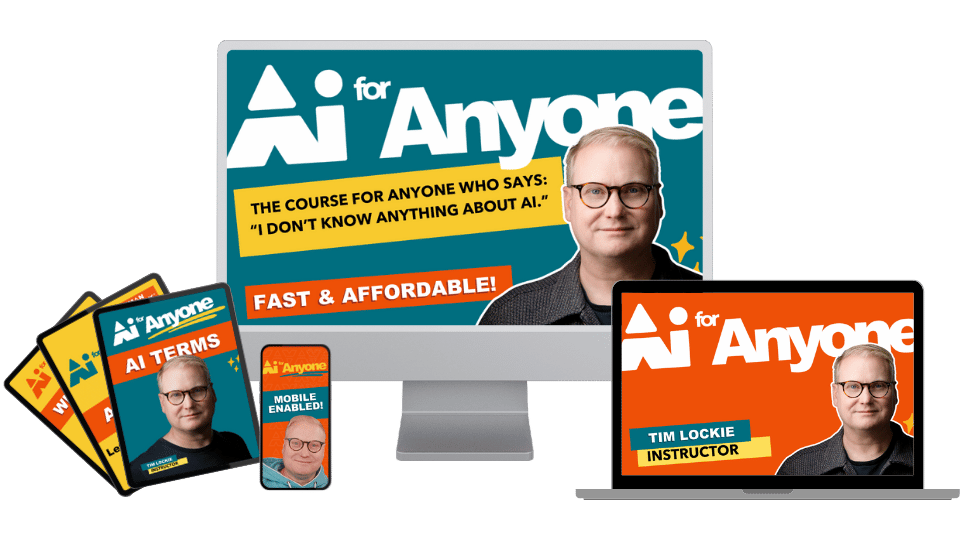
WATCH ON YOUTUBE

Listen To The Episode
OVERVIEW
In this episode, Nathan and Scott explore the concept of anthropomorphizing AI, delving into how simple acts like saying “please” and “thank you” can transform how we interact with AI tools. The duo examines best practices and philosophies around polite interactions with AI, referencing Conor Grennan’s rationale and the “Hi, Great, Thanks” (HGT) framework for polite, human-centered exchanges. They also highlight the importance of distinguishing between collaborative and transactional AI tasks to optimize user experience.
Nathan and Scott compare various AI tools, including ChatGPT, Copilot, and Perplexity, noting their strengths and weaknesses. Moreover, they discuss the role of memory in AI tools and how leveraging AI memory enhances productivity while maintaining user control.
Looking toward the future of AI and human interaction, Nathan and Scott emphasize the importance of balancing AI efficiency with preserving human qualities like good manners and empathy. They advocate for thoughtful, intentional use of AI in personal and professional settings, maintaining a human-centered approach in an evolving technological landscape.


EPISODE HIGHLIGHTS
- [02:14] The Concept of Anthropomorphizing AI
- [04:27] Best Practices and Philosophies Behind Using "Please" and "Thank You"
- [08:25] Comparing Different AI Tools and Their Effectiveness
- [13:18] The Role of Memory in AI Tools
- [19:00] The Future of AI and Human Interaction
- [27:52] Upcoming Topics




TIPS AND TOOLS TO IMPLEMENT TODAY
- Start and end AI interactions with "please" and "thank you" to encourage mindfulness.
- Use collaborative AI like ChatGPT for creative tasks and factual tools like Perplexity for research.
- Always double-check AI-generated outputs, especially in critical contexts.
- Regularly save final versions of work in AI with memory to maintain consistency.
- Experiment with different tools (ChatGPT, Copilot, Perplexity) to find the best fit for specific needs.
- Combine AI efficiency with maintaining human qualities like empathy and good manners.
- Use "Hi, Great, Thanks" as a simple framework for polite AI interactions.
- Identify ways AI can save time and reinvest it into strategic or creative tasks.
- Continuously learn about AI capabilities and limitations to use tools effectively.
- Encourage thoughtful AI use in personal and professional settings to minimize risks and maximize benefits.
ADDITIONAL RESOURCES
- Allie K MIller's Linkedin Learning AI Course
- ChatGPT4 accurately predicts human behavior in social experiments at 85%, across genders, races, and political affiliations.
- AI Adoption Is Driving Real Top - And Bottom-Line Impact For Enterprises (Gartner)
- Gen AI is hitting a trough of disillusionment (Gartner Hype Cycle)
- A new AI Pendant created to combat loneliness
- AI-first organizations
- More departures at OpenAI
- OpenAI's GPT-5 is coming out soon. Here's what to expect.



FAVORITE QUOTES
- "Get the most out of your AI. Unlock your brain from this binary, transactional thing, to be human and stay human and make sure that you know you're prioritizing your humanity over that utility every single time." - Nathan Chappell
- "By saying please and thank you, it unlocked a portion of your brain that you were looking at a tool that was static or one-dimensional, that it was transactional." - Nathan Chappell
- "Where I was using ChatGPT, it is truly conversational. But when I went to Perplexity, I never once said, Thanks. Technology is the same, but what's the difference? The interface - one definitely felt more transactional, and the other felt more relational." - Nathan Chappell
- "My orientation is now naturally that GPT is a collaborator." - Nathan Chappell
- "When I use ChatGPT in any interface, voice or text or images, somehow, in my brain, see it as a collaborator, and therefore it's like relational from that perspective." - Nathan Chappell
- "Use a tool that fits your work style and your job function." - Nathan Chappell
- "If you're already conditioned to using a Gen AI tool, like a ChatGPT, Copilot, Perplexity, or Gemini in a collaborative style, where it's like an exchange of push and pull, I don't think it matters if you're saying please or thank you." - Nathan Chappell
- "We have to be aware of that, that we're talking to a tool that is conversing in a language that's familiar to us to allow us to use the tool better, and that, I think, is perfectly okay." - Nathan Chappell
- "When I use it like I would use a Google search, I'm not saying thank you, but when I work with someone, then I'm saying thank you. And I think Conor's framework is what HGT, Hi, Great, Thanks. It always starts as a conversation, like, Hey, how are you doing? and then working the whole way through with being polite and gracious." - Scott Rosenkrans
- "I think in ChatGPT, you're often building something together. It is a teammate, whereas Perplexity gives you an answer. You get what you want, and then that's it. You don't need anything else." - Scott Rosenkrans
MEET YOUR HOSTS
Nathan Chappell
As a thought leader, public speaker, author and inventor, Nathan is one of the world’s foremost experts on the intersection between Artificial Intelligence and philanthropy. Nathan serves as Senior Vice President of DonorSearch AI, where he leads AI deployments for some of the nation’s largest nonprofit organizations. Nathan’s subject matter expertise has been featured in several publications, including Fast Company, University of Notre Dame and the Association of Healthcare Philanthropy. In 2021, Nathan founded Fundraising.Ai as a member-centric collaboration of nonprofit professionals with a focus on data ethics, data equality, privacy and security, sustainability. Nathan presented the first TEDx on the topic of artificial intelligence and the future of generosity in 2018. Nathan is a member of the Forbes Technology Council and holds a Masters in Nonprofit Administration from University of Notre Dame, an MBA from University of Redlands, a certificate in International Economics from University of Cambridge and a certificate in Artificial Intelligence from MIT.

Scott Rosenkrans
Scott Rosenkrans is the Assistant Vice President of DonorSearch Ai and has been with the organization for three years. He began his journey in the nonprofit sector twelve years ago as a prospect researcher. He quickly became fascinated with data as he noticed the organization that he previously worked for was amassing a wealth of information but was unsure how to efficiently use the data and resources to its full potential. This led him to become interested in predictive modeling and data analytics. During this time, he began to create an immense commitment to delivering tailor-made machine learning models to nonprofits.
The thing that Scott loves most about working for DonorSearch is the ability to prioritize what is best for the client and nonprofit sector above all else. He believes that growth is our most important core value because the DSAi team continuously evolves and brings a unique perspective that provides value to our clients. He stays ahead of industry trends because of his insatiable drive to constantly try out new things.
Favorite nonprofit: Shriner’s Children Hospital because of their extreme commitment to providing exceptional medical care, while also alleviating the financial burdens on families.
